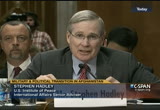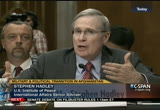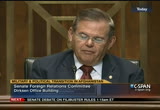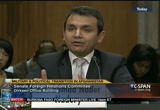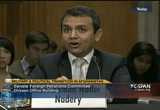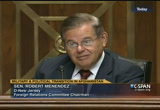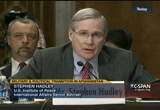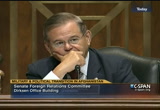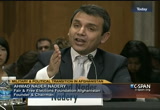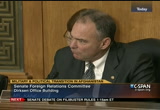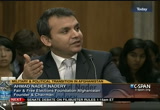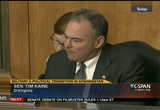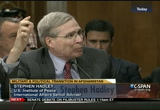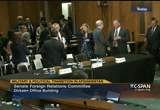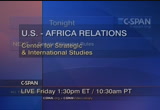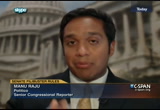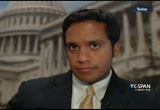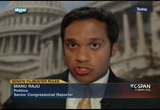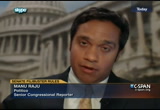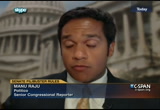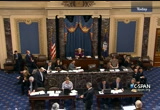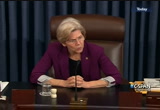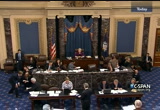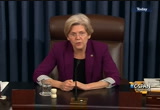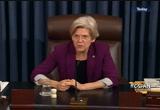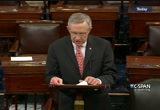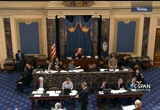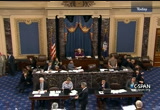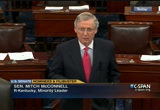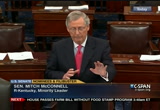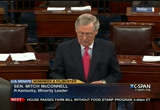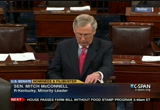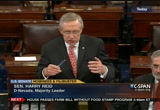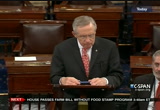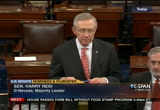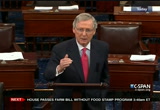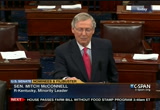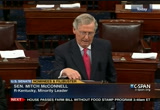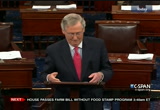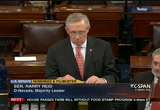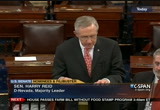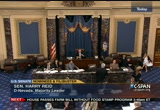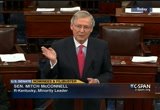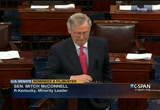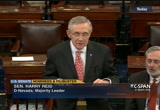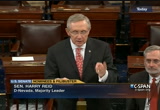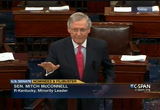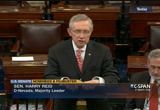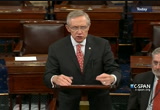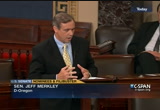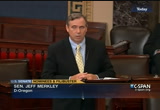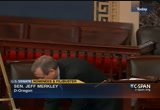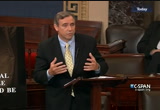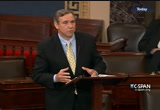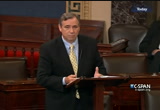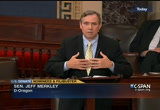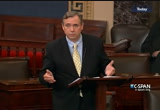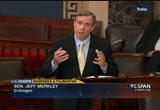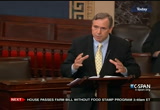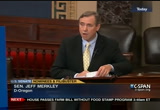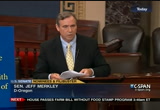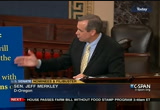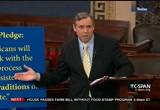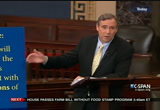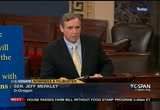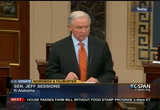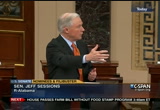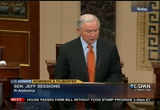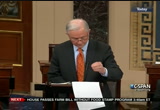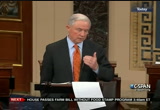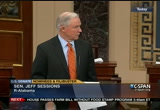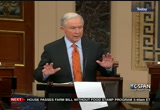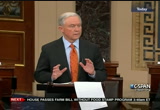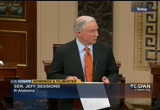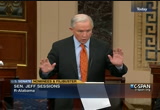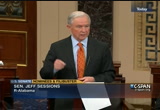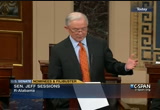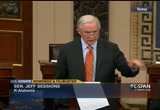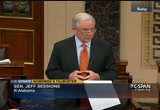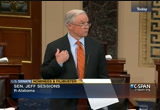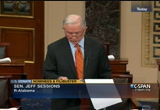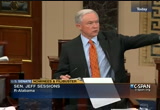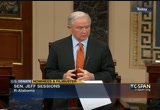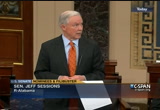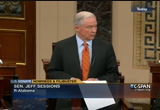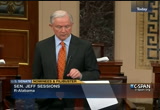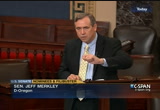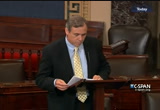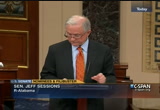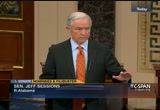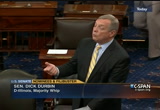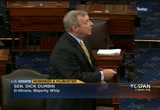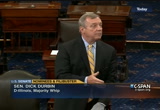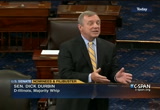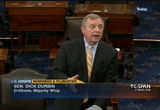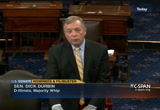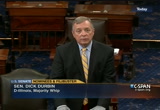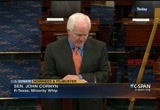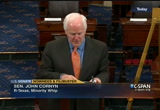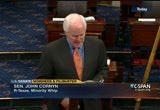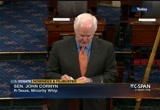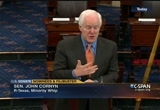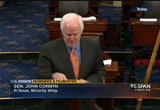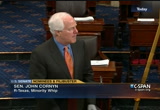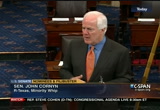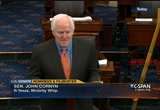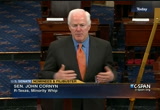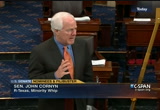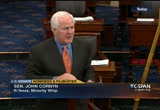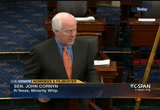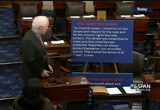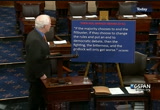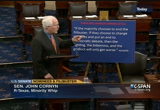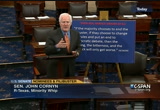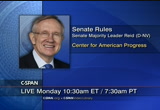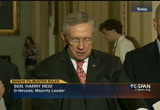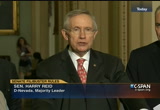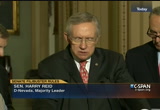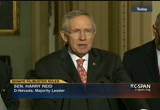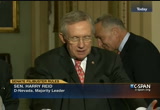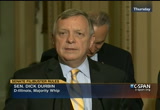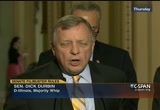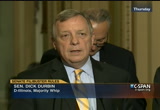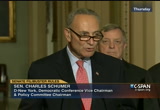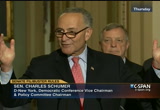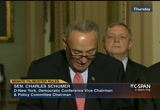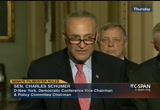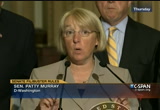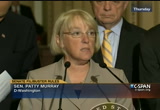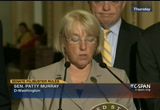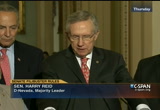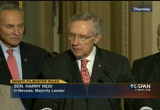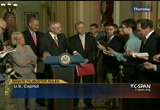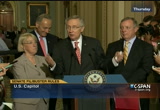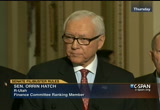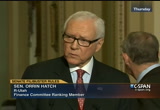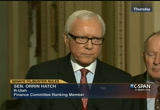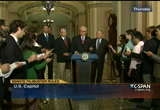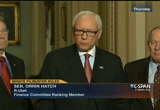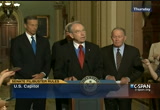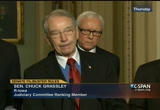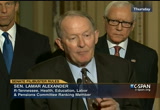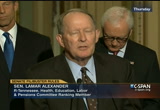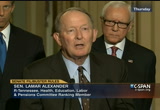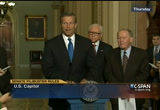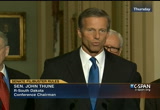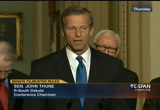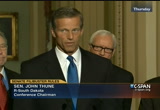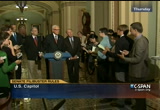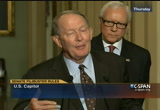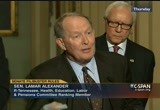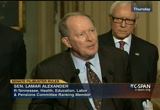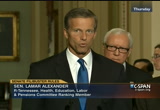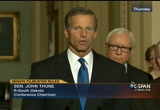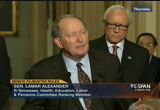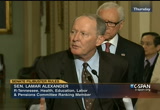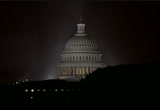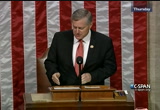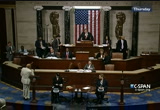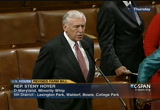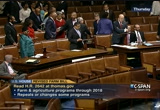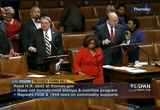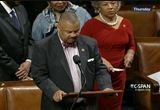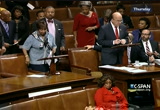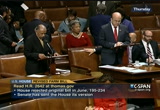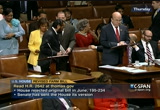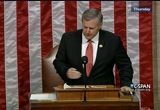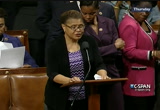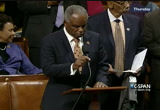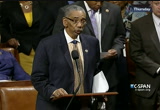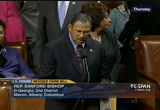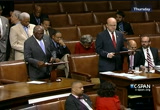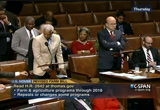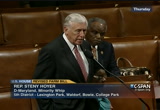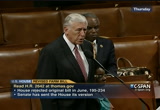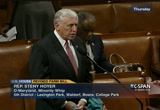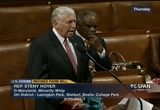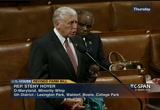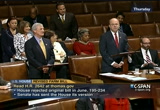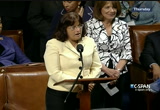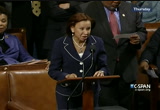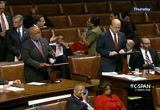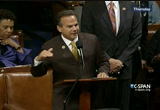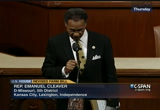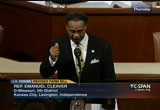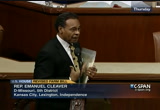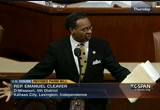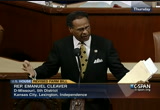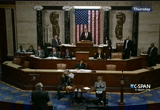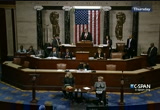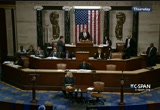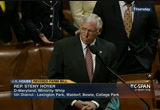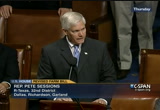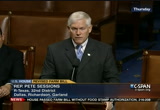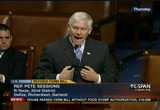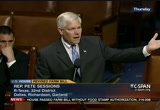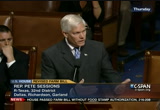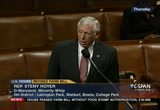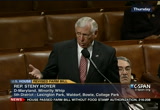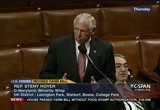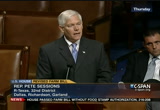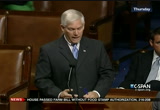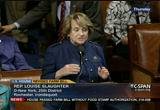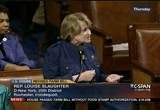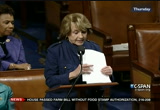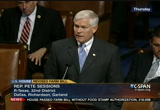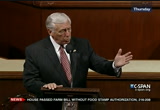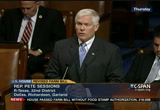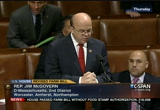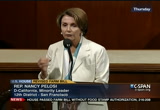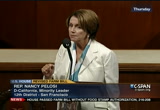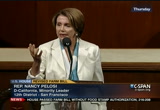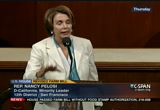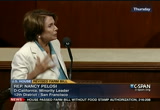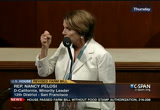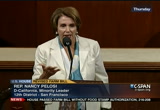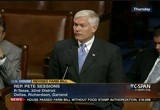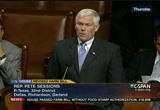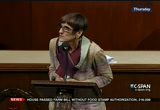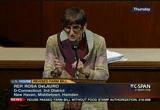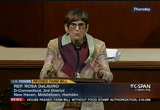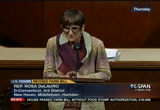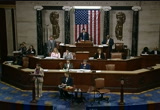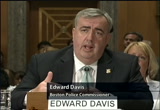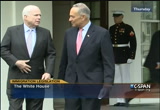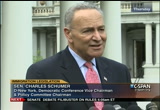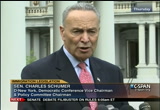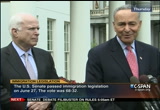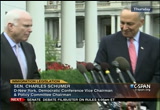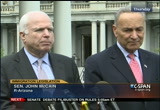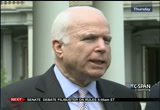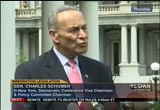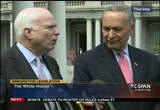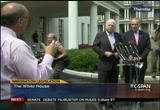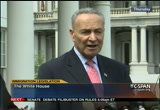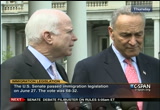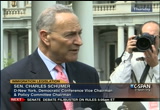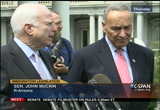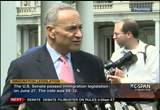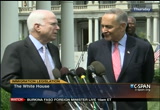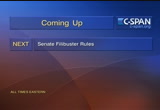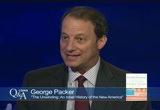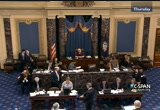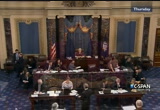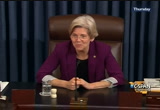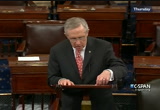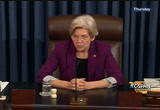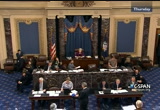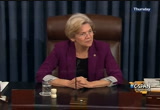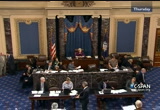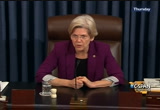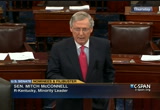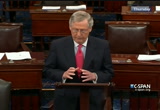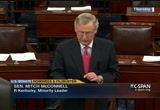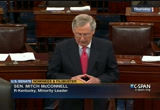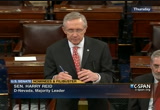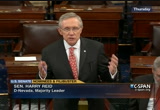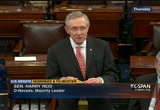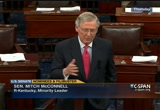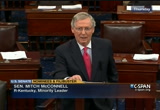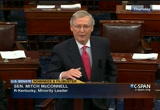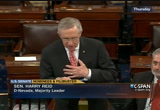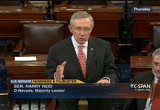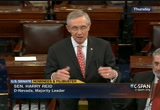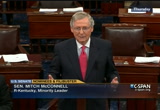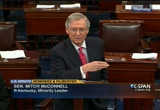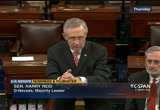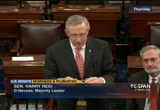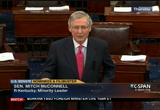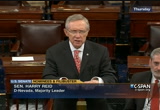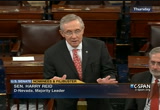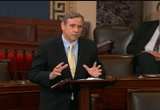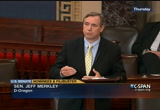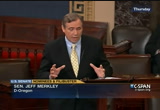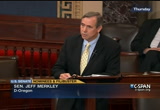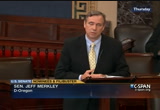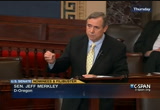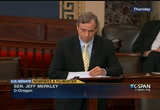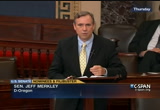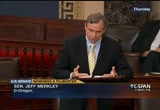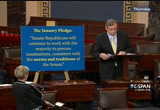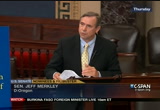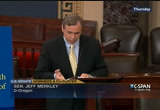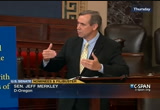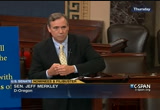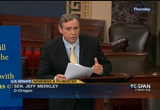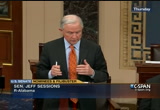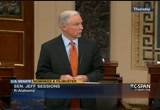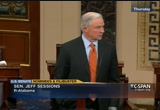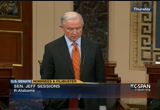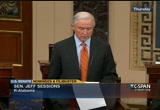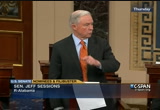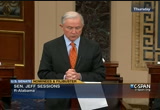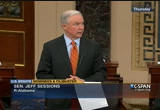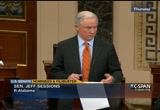tv Capitol Hill Hearings CSPAN July 12, 2013 1:00am-6:01am EDT
1:00 am
clear this election is a top priority. a lot of afghans thought reconciliation with the taliban was our top priority. this should be our top priority and it is. we have not made that clear. there, i would agree, the election needs to be part of a broad-based reconciliation they largely feel alienated. that is what the selection can do. it will empower the afghan government. at that point, after the government -- after the elections, an empowered government supported by its people having international support backing up an army that is willing to fight for that government and then you can have about thoseation were willing to come out of the fight and give up the violence and let the afghan army deal with the rest.
1:01 am
i think at that point, pakistan will accept that they have given up the notion that the taliban .re going to take over i think pakistan now feels that afghanistan threatens pakistan. i will say that pakistan would lower its objective and except some kind about, as long as there is some type of taliban and role. be toitical thing will have an empowered, fairly elected government supported by the -- supported afghan people that can rectify the society. that is critical to discussing the things they talk about. >> i appreciate hearing the words thank you because that is something president karzai never seems to be able to say.
1:02 am
with reference to your own view, what would you want the united to help you achieve the type of elections that the afghan people will have faith and? >> i will endorse what he said about the elections, but to add on that, one of the critical things is the type of messages that both the afghan political leadership and the public receives starting with raising the bar higher than what was discussed in the past. it means that emphasizing as much as you can on both the process and the principle of those processes. what kind of free and fair election you want to see being there. that message needs to remain consistent throughout. we were grateful to hear recently that secretary kerry changed it from credible elections to make it specifically free and fair.
1:03 am
that matters before the election. do not move the bar lower. keep it as high as possible so we can send a message to those people who are preparing for .hatever possible outcome continue the technical assistance both to the institution of the election commission, especially on the front mitigation measures. there is a large number of expertise and lessons learned in that part of the world that need those in theted to including make sure you are pressing for more international observers including support for those on the ground. the election issue remains a consistent priority and the messages need to match the issue of clarity coming from your government to our government and our president.
1:04 am
they do not want a delay of the election or the reconciliation of the election to work. >> i would like to ask this of all of you. i read the article in the new york times and i said it was certainly unfortunate, but by i think president karzai somehow thinks he has some leverage with us over this issue. somehow he thinks this is not a so therefore we will have to be held over the barrel at the end of the day. i think the one thing he should understand is that it is not beyond the possibility if we cannot get a bilateral security agreement.
1:05 am
how do we disabuse president karzai of the belief that this is something to negotiate with? negotiating an agreement is understandable, but there's a difference between negotiating an agreement and using it as an effort to leverage whatever he is seeking personally, for future, security, living in afghanistan, what comes along with his and the wants, whatever. i get a sense of the flipside and we talk about the united states not making it clear and i think we should make it clear that we intend to stay. by the same token, we cannot be held to -- held hostage by president karzai. >> it may have started as an can pullying we really them all out. the problem is the multiple audience problem that this made the rest of the country. of confidence.s that was, i think, a terrible mistake. i think use using the bilateral
1:06 am
security agreement and that is ay my suggestion is to make clear commitment of a specific substantial number. say thiss e're going to do to reassure the rest of the would love to negotiate it with you. then we would negotiated with and iteople who come in takes the leverage away from him. i think the combination of those two things, at the end of the day, but lead him to come to the table and negotiate an agreement because i think he wanted to be part of his legacy. i don't think u.s. to leave it to the next government. it is a very frustrating situation. >> i'm going to have to go in just a minute. i would posit the negotiations. .- i would just pause
1:07 am
leave a troop presence in 2014 in the order of acts, but we will resume negotiations after the election. ofi fully agree with both the speakers on that front, but that youeemphasize hear an entirely different message including that from to aament compared president karzai says, there is the overwhelming majority of support for the bilateral endorsement,ement, and adoption. therefore it needs to be a multilayer of messaging and also without the stakeholders on ground and not to pause the bilateral security agreement ago she nation. it needs to continue with the no answerthat a should not come making it clear in communications to the president that if he is not signing the next administration
1:08 am
with the popular support of the public, they are not going to achieve and it will not be his of thebut the legacy next government which will have .he popular support >> if you have a question, she has a speaking engagement and she has been hanging in here. you asked all of my questions almost. that may ask a threshold and then maybe ms. chase could go first. just a threshold question. what is your perception about the degree of support in the afghan population for a u.s. residual force jaco -- a residual force? post 2014? >> a good indication of looking into that would be all of the discussions that have happened when there was a final decision thee made at the time strategy partnership agreement. the overwhelming support in the
1:09 am
overwhelming sense of support through civil society after the an indication of a continued partnership with the united states. whenever there is a discussion about the option for withdrawal, you hear a higher degree and a higher sense of anxiety and fear in the outline population. it creates further uncertainty about the future. support fora lot of a residual number of troops on the ground. that needs to be looked at in a way where the numbers are not coming right away, and needs to be announced in a way that it is tailored to the needs on the ground. afghan forces are fighting hard, it needs more support. a number of troops will be tailored that way. definitely, we have that we take
1:10 am
more responsibility and we're going to fight for our own country. therefore, the numbers will be corresponding to those needs for the support role in the areas that we need. at this stage, the numbers will definitely make a huge psychological confidence boosting and building role. >> last question. you have really already answered the question in your written testimony, but in afghanistan, the two that narratives would be occupation or abandonment. we are trying to establish a force that is not an isolation force or in abandonment. from your judgment based on what you're hearing on the military leadership about what the size of that force would be, a combined u.s. nato force, that
1:11 am
.s a range being discussed is it acceptable? i think it should be ms. and -- >> i think it should the mission driven. the former ambassador tried to do it with a mission driven effort. my guess is if you do that mission driven, the way that he did it, you are in a number that is in the 15,000, not the 9000 area. a number that should be roughly adequate to do the mission. you asked me to read the tea leaves and that is kind of how we read it.
1:12 am
>> thank you, mr. chair. >> thank you for your testimony it's invaluable. anti-for traveling all the way .rom afghanistan the record will remain open to the close of business tomorrow for any members who wish to submit questions and with the thanks of the committee, this meeting is adjourned. [captions copyright national cable satellite corp. 2013] [captioning performed by national captioning institute]
1:13 am
likes a couple of live programs about africa. the prime minister of burkina ofo will talk about the area nine countries between the atlantic ocean and the red sea. at wilson center starts 10:00 a.m. eastern on c-span. later in the day, a conversation on president obama's trip to africa. live coverage from the center of strategic and international studies at 1:30 p.m. eastern. senate majority leader harry reid and minority leader dutchman, debated whether to change senate rules to limit
1:14 am
filibusters. the so-called nuclear option. this is next on c-span. the house passed a revised farm 208., 216- we will have some of that debate later. a senior political correspondent from politico joining us. what came out of the meeting on the proposed changes to filibuster rules? >> harry reid is ready to go forward with the so-called nuclear option, to change the senate rules by 51 votes rather than the normal threshold of 67. the higher threshold is usually set to make it harder for rules changes to occur, but harry reid says he is so frustrated with the use of the minority parties blocking legislation and nominations to move forward and he will invoke this very unusual procedure to change the rules by 51 votes.
1:15 am
what reid wants to do is to invoke the nuclear option to essentially change the filibuster rule so no longer will 60 votes be required to forcome a filibuster presidential nominees for executive branch positions. it will only affect executive branch positions, not judicial nominees, not legislation coming forward. move reid just wants to forward so that no longer can a thetor block a nominee for epa, labor department, defense department by requiring 60 votes. instead, 51 would be required, only a majority of the senate. said majority leader harry reid wanted to move forward. what would the next step be in the senate? >> there will be a joint meeting in the old senate room just off
1:16 am
the senate floor. very rare. rarely do both parties decide to actually meet in one setting. they are going to talk about the use of whether or not the senate should go forward. it seems to me to be about a dog and pony show. willnot think that actually change read moving forward. what will change if he gives mitch mcconnell caving to his demand and it allows the spate of pending nominees to be confirmed by 51 votes. right now it seems very unlikely and read is threatening to move forward with this unprecedented step with what future majority leaders could decide to further weaken the filibuster -- the filibuster rules. >> they have been toying with the idea of changing the rules for the last year or so. what is the impetus for this
1:17 am
latest effort? >> several nominees who are stuck who harry reid has tried to get confirmed. the consumer financial protection bureau normandy, richard cordray. he national labor relations board has several nominees who toe allowed that agency continue to function as well as a couple of other nominees awaiting action, the labor department, secretary tom perez, gina mccarthy to head the epa. epa, it sounds like mcconnell would those votes to go forward. those are wrapped up in a larger fight that is before the supreme court involving the president's recess appointment authority, in which to move forward with richard cordray's nomination as well as the debate about whether the senate was actually in
1:18 am
recess and the president was allowed to circumvent the senate. there is a constitutional fight pending before the supreme court regarding those nlrb nominees. those nominees are before the senate and harry reid wants to confirm them by an up or down vote. a, saying he is not going to allow that to happen. >> what are republicans saying about what senator reid is planning to do? >> they are furious. , was on the floor earlier today and saying if we go forward, he will be the worst majority leader ever. this was a very personal exchange. they are warning that if this happens, if he invoked the
1:19 am
nuclear option and sides it is decides he can change the of boats, they are going to do the same thing. they will continue to weaken the filibuster. to the point where it it may no longer exist. they say if that happens, the senate will be just like the house. the house passes legislation that will win a majority wants to pass something. if that happens, it will have major impact on future presidents and a huge impact on the country. >> thank you. now, senate leaders harry reid and mitch mcconnell debating changes to the senate rules on the filibuster. reid says there would be procedural test votes tuesday and a number of white house nominees said it would be blocked by senate republicans. >> i would be 30 minutes.
1:20 am
moved to go to executive session. on the motionn is to proceed. all those in favor? all those opposed? they ayes have it. the motion is agreed to. the clerk will report the >> bureau of consumer financial protection, richard cordray to be director. click the clerk will report the closure motion. >> in accordance with the provisions of rule 22 hereby move to bring to a close the debate on nomination of richard cordray of ohio to be the director of the bureau of consumer financial protection signed by 18 senators as followed. we not read the names. >> is there objection?
1:21 am
without objection. >> i now move to proceed to legislative session. >> the question is on the motion to proceed. all those in favor? all those opposed say no. the ayes do have it. >> the motion is agreed to. the question is on the motion to proceed. all those in favor say aye. all those opposed say no. they ayes have it. the clerk will report the nomination. >> richard f. griffin jr. of the district of columbia to be a member. >> the clerk will report the cloture motion. >> in accordance with provisions of rule 22 is about to to bring to a close the nomination of richard f. griffin jr. of the
1:22 am
district of columbia to be a member of the national labor relations board signed by 17 senators as follows. >> i move to proceed to a legislative session. >> all those in favor say aye. all those opposed say no. the ayes have it. the motion is agreed to. >> the question is on the motion to proceed. all those opposed say no. the ayes have it. the motion is agreed to. >> nomination, sharon block of the district of columbia, to be a member. >> i have a cloture motion at the desk.
1:23 am
>> we move to bring to a close the debate on the nomination of sharon block of the district of columbia to be a member of the national labor relations board, by 17 senators as follows. >> without objection. >> i now move to proceed to legislative session. >> questions on the motion? all those in favor, say aye. all those opposed say no. the ayes have it. >> i now move to proceed to executive session. the motion is agreed to. the clerk will report the nomination. >> national labor relations board.
1:24 am
>> i have a cloture motion. >> the clerk will report the cloture motion. >> we the undersigned senators hereby move to bring to a close the debate on the nomination fort member of the national labor relations board, by 17 senators as follows. >> without objection. >> i ask consent be waived their requests without objection. i now move to proceed to the legislative session. >> the question is on the motion to receive. the ayes have it. the motion is agreed to. all those opposed say no. the ayes have it.
1:25 am
the clerk will report the nomination. >> there is a cloture motion at the desk. >> we the undersigned centers -- senators move to bring to close the debate on the nomination, by 17 senators as follows. >> without objection. >> i now move to proceed to legislative session. >> the question is on the motion to proceed.
1:26 am
all those in favor say ayethe ayes do have it. the motion is agreed to. >> i moved to proceed to executive session. >> the question is on a motion to proceed. all those in favor say aye. all those opposed, say no. the ayes have it. the park will report the nomination. >> department of labor, thomas edward perez of maryland, to be secretary. >> the clerk will report the cloture motion. >> i ask consent that the reading of names be waived. >> without objection. >> i moved to per se to
1:27 am
legislative session. -- i move to proceed. >> all those in favor say aye. the ayes have it. the motion is agreed to. >> the question is on the motion to proceed. all those in favor, say aye. all those opposed, say no. the ayes have it. the motion is agreed to. >> i sent a cloture motion to the desk. >> the clerk will report the cloture motion. >> we hereby move to bring to a close the debate on the nomination of regina mccrary of massachusetts to be administrator of the
1:28 am
environmental protection agency, by 17 senators as follows. reid, boxer, murray, udall of in mexico, sanders, white house, gillibrand, and shot. >> without objection. the question is on the motion to proceed. all those in favor say aye. the ayes have it. the motion is agreed. republican leader. >> madam president, i have a consent that i think would set
1:29 am
up these votes in a much more expeditious way than the way the majority leader is proceeding. first, let me just say these are dark days in the history of the senate. i hate that we have come to this point. we witnessed the majority leader break his word to the united states senate, and now our request for a joint meeting of all the senators has been set for monday night, a time when frequent -- when attendance around here is frequently quite spotty. in our obvious effort to keep as many of his members from hearing the concerns and arguments of the other side as possible. it remains our view that for this to be the kind of joint session of the senate that it ought to be, given the tendency of the senate to have sparse attendance on monday night, to have this meeting on tuesday before it is too late.
1:30 am
having said that, a more expeditious way to accomplish most of what the majority leader is trying to accomplish would be achieved by the following. i ask unanimous consent that on tuesday, wed 2:15, the senate proceed to consecutive votes on the confirmation of the following nominations. no. 102, johnson, to be a member of the nlrb, and number 103 to be a member of the nlrb. if those nominees were confirmed, coupled with the two nominees illegally appointed, whose illegal appointments continue to the end of the year, the nlrb would have a full complement of five members and be able to conduct its business. i further ask consent that following those votes, the senate proceed to the cloture
1:31 am
motion called on #99, that is perez to be secretary of labor. the senate immediately proceed to a vote on the confirmation of the nomination. that would eliminate the's 30 hours, assuming cloture were invoked, on a very controversial nominee to be secretary of labor. further, the senate vote on the cloture motion filed on calendar #98, mccarthy, to be epa director, and if cloture is invoked, the senate receives a vote on the nomination. also eliminating the 30 hours's cloture if cloture is invoked on mccarthy. i might add that the ranking member of the environment
1:32 am
committee supports cloture on the mccarthy nomination. therefore it is reasonable to assume that cloture would be invoked and what is for a lot of my members, including myself, very controversial nomination. i further ask the consent then vote -- that the senate then vote for someone to be president of the export-import bank. if cloture is in vogue, the senate proceed to an immediate vote on the confirmation of that nomination, again eliminating the 30 hours's cloture. wiley i ask consent that the following votes listed above the senate proceed to cloture votes on the remaining three filed cloture motions. before the chair rules, what this shows -- with this allows for the center work officially through a series of nominations in a quicker fashion than the
1:33 am
majority leader has proposed. they would get their boats and there would not be a delay. this would only leave discussion and votes on the three remaining illegally, according to the federal court, the three remaining illegally appointed nominations. mr. president, that is my consent. >> mr. president, no matter how often my friend really talks about me not wrecking my word, i am not going to respond talking about how many times he has broken his word. that does not add anything to this debate we are having here. all you have to do is look back at the record today. my members will be here monday night. i don't understand, unless this is part of the overall pattern, what does the company expect around here to not do anything
1:34 am
today you can do tomorrow. mr. president, we are going to have a vote at 5:30. >> i am stunned about the ranking member isn't that something to cheer about? he is the one that is responsible. that is what is wrong here, mr. president. this is so transparent, what my friend has asked. he has said he wants to approve to republican members. let's have those first and only one democratic nominee.
1:35 am
what does this mean? that means in a couple of months the republicans have a majority in the nlrb. i don't blame him for wanting that. they don't like the organization anyway. so i understand that they would like to get consent to create a ripple reject republican majority in the rock nlrb, but it is so obvious. i object. we are going to have a caucus monday at 6:00 in the senate chamber. i would hope that something this important will have attendance. i know my caucus will be there. if nothing is resolved there, which the way things have been going today, likely will not be. we will have a vote sometime early tuesday morning on these nominees. >> mr. president, the majority
1:36 am
leader always reminds me he can have the last word, and i am sure he can have the last word again. speaking for senator vitter, he did ask for a lot of information from the new prospective director of the epa, and so did senator boxer. she asked for 70,000 pages herself, but he was satisfied with the responses he got. this is how the process ought to work. this is how it has worked for decades. you try to get answers to questions. you try to engage in some kind of prediction as to how someone might operate in the future. the majority leader has been saying all along that he wants the confirmation process to be speedy and for the minority to sit down and shut up. he believes that advise and consent and sit down and shut up. confirm these nominees when i tell you to.believes that advise and consent means to sit down
1:37 am
and shut up. cap from the nominees when i tell you to. the reason he has taken heat over this is because he has broken his word. we had resolved the rules of the congress last january. i know for a fact that even though he may get his 51 votes, many democrats are not happy where you are. when they tell me that, the republican i think they would least want to tell that to, i know what is going on. they have been hammered. this is been personalized by the majority leader. you want to do this for me. what is astonishing is that you're going to do this for me
1:38 am
because you want to on the break my word. like i said in my own biography a huge years ago, you are going to help me look bad. you're going to help me break my word, violate what i said in my own biography, create unnecessary controversy in the u.s. senate, which is then major bills on a bipartisan basis all year long, this is hard to understand. this is why my members are astonished. they are scratching their heads. who manufactured this crisis? we know who did it very -- we know who did it. the guy on my left. this is a sad day for the u.s. senate. if we did not pull back from the brink, the majority leader will be remembered as the worst winter ever. the leader of the senate who changed the body. it makes me sad. all of my members are angry, i
1:39 am
am more sad about it. it is a shame that would've come to this. i hope democratic senators are their member -- are there on monday night. if we sat down and try to understand each other, many members on the other side are hearing a different version from facts. it is largely unrelated to reality. i note my friend the majority leader will have the last word. the difference between being a majority leader and a minority leader is that he gets the last word. i will yield the floor and listen to the last word. >> mr. president, the majority leader. >> no matter how many times he says that, he tends to not focus on what he hasn't to the senate. as i indicated earlier, there is lots of time.
1:40 am
we know it is replaying the record how he said that there would be no filibusters, only extra. circumstances -- only extraordinary circumstances. the only person i know who thinks things are going fine here is my friend. the american people know the institution is being hammered hard. he does not have to worry about me rick i have not taken any heat -- i do not -- he does not have to worry about me, i have not taken any heat. we heard from out of my 54 senators, we have heard form -- from either 2425. the attendance was not perfect. mr. president, i do not went in to feel sorry for the senate, certainly not for me eric -- for
1:41 am
me. i will continue to speak in a tone that is appropriate. i guess it follows a demagogue theory that the more you say something, it is also. mr. president, it is interesting that he thinks that richard cartwright, who no one says there is anything wrong with this man. both parties say he is a good guy. he has been waiting for seven to -- four 724 days. this is the secretary of defense, 292 days. monetary governor, 169 days. nlrb, 573 days. the average time winning is nine
1:42 am
months. mr. president, as far as reshuffling the votes, he wants to have the majority of this nlrb to the republicans. i do not think that is a good idea. we are going to have a caucus monday. i have tried to had them before, and i found him addicted to them. i'm happy to do that. my friends of the process works. the process works? the status quo is good? i don't think so. >> mr. president, republican leader. >> the nlrb is not republicans. i mentioned to the administration on several occasions to send us up two nominees who are not illegally
1:43 am
appointed. we cannot seem to get that done. the tank attached to the two nlrb nominees and to mr. cordrey is that they were illegally appointed. the agencies have not been at a disadvantage. they are waiting. he is not waiting to do the job, he is in office. the question is -- do we respect the law? a federal court has said that two nlrb members were illegally appointed. mr. cordrey was appointed on exactly the same day in exactly the same way. is it the senate completely lawless? do we not care what the federal courts say? i am just stunned at what radar.
1:44 am
i am just stunned at where we are. all of the other nominees are likely to be confirmed. what it comes down to is the majority leader is owing to break the rules of the senate to change the rules of the senate in order to confirm the 51 votes, three illegally appointed positions. the federal courts and told us there unconstitutionally appointed. that is the rationale for the option. that is why i say it is a sad day for the senate. also a sad day for america. >> the majority leader. >> illegally appointed. why did president obama recess appoint mr. cordrey and other
1:45 am
members? we count cordrey as 571 days. elizabeth warren set up the program. they said no chance. these are cadel tears -- you have reason supplements because the president had no choice if he wanted the team to work. he said they would be happy to present them weekly. -- to process them quickly. sorry, mr. president. there is not a chance we will let the nlrb nominate republicans. the law should not be dominated by republicans, and will not be.
1:46 am
this could be resolved quickly . they can all vote against these people, but on procedural basis, they are holding out votes on people who are more qualified. this is strange. talk about marshaling your troops to do something wrong, it is that. if they are so worried about the rules changing, they should approve three qualified people. no one suggests there's anything wrong with any of them. there were reported because the republicans forced president
1:47 am
obama to do that. there will be no further votes. the next vote is monday at 5:30 p.m.. >> i am trying to avoid laughter. the two nlrb nominees were sent to the senate on december 15, 2011. before the paperwork on here, two weeks later the president recessed appointed them. delay? the paperwork had not even arrived. the committee could not do anything with them. a couple of weeks later, they were recess appointed.
1:48 am
that is not my definition of a delay. by any objective standards. the court issue is -- he is prepared to break the rules of the senate to change the rules of the senate for three nominees who were unconstitutionally appointed according to the federal circuit court in washington dc. for that, the majority leader proposes to use the nuclear option? it is a sad day and commentary on today's senate. >> the majority leader. >> the senate crated by the republicans -- this role change,
1:49 am
he gives talking about a rule change. the constitution is clear there is one paragraph that says that trees take two thirds of a vote. in the same paragraph, how many votes does it take to confirm a nomination? majority. that is in the constitution. since 1977, rules of changed 17 times. not my fancy things done by the committee, but in the senate. we have three people who are qualified. if republicans want to avoid a problem, what they want to do is continue. can you imagine the american people are looking at this and saying that they think the
1:50 am
senate is going just fine. this goes -- the status quo is good? look at the gallup poll. 80% -- 86% of the american people think the senate is bad is because they are not doing important things. i have been here a while. we have done good things assure. we should be doing lots of good things. not focus on immigration, a farm bill, a postal bill. we talk about word. minority leader had a few phrases that he used. about to break the rules and change the rules.
1:51 am
the second phrase, also involving the word break was repeatedly to say that you have broken your word. .hose are very powerful words my mother always said when people start saying things like that is because they are at a loss for a real argument. i found both of these phrases disturbing. disturbing because they are so at odds with what this conversation is really about. we are here in the midst of a constitutional crisis. our constitution was set up with a balance of powers between three coequal branches with checks and balances. dreamsn their wildest did the crafters of our constitution envisioned that a
1:52 am
majority, excuse me and a minority of the senate would undermine the function of the other two branches. they were very deliberate in their determination that they're andthe such a possibility laid out with clarity that advice and consent on treaty stick a super majority. when it came to the other branches, the judicial and the executive, have a simple de facto standard. they are exactly in the same care of breath -- same paragraph. they talked about this because they had an experience in which the super majority had caused all sorts of difficulties. i thought i would remind us a little bit about the framework they laid out in the
1:53 am
constitution. alexander hamilton said it would lead to tedious to lays, continuous negotiations, and contemptible compromises of the good. why alexander hamilton felt so strongly that should be a simple majority standard, he was not a lone. he had madison, who wrote the principle of free government would be reversed if a supermajority is a functioning system. we have simple majority votes and checks against ill advised nominations by the executive branch. that has been the tradition throughout our nation's history.
1:54 am
simple majority votes interspersed by very occasional blockades put up by exercising the will to filibuster. very rare use of that, until the last few years. indeed, a few years ago, our republican colleagues were in charge. they were upset by a small number of filibusters by the democrats. they came to this floor and said that is not acceptable and they reminded us of this constitutional framework and they asked for a deal. the deal they asked for was, they would not change the rules and democrats would not filibuster the nominations. and yet, we do not see -- the deal was struck.
1:55 am
the largest number of executive branch employments piled up, and yet, my colleagues on the other side here are saying, the senate is functioning just fine. about 80% of the american people think the senate is functioning fine. you have to recognize, they are just not paying attention. this is not the senate i knew as a young man coming here as an intern sitting up at the staff gallery, coming down to brief him on the amendments debate before each vote. at that time, we had simple up and down votes, with the rare exception. if we turn the clock back to lyndon b. johnson, as majority leader, on this floor right here, only once in six years did
1:56 am
he need to file a petition in order to close debate. that was not just on executive nomination. judicial nominations, and legislation. once in six years. senator reed, as majority leader, in his first six years, had filed 391 petitions. this petition process is it -- is designed to take a long time, because it was envisioned it would be used so rarely. here we are with a minority of the senate doing deep damage to the executive branch and deep damage to the judiciary by the abuse of the filibuster, creating an imbalance or creating on equal branches of government completely out of sync with the constitutional vision.
1:57 am
are we, as members of this body who have a responsibility, have taken a pledge, going to allow for this deep abuse of the constitutional vision of equal branches? i do not think anyone who takes their pledge seriously can come to this floor and argue that a small group of the senate should be able to do deep damage to the other branches. the republican leader noted, he said, the strategy here is to break the rules in order to change the rules. i thought it would just remind him that i believe he came here in 1985, that in that time. , many times, the senate has changed the rules, using a simple majority to change the application of the rule.
1:58 am
we did it in december 11, 1985. 1986, twice in 1987. once in 95. twice in 1996. in 1999, in the year 2000, in the year 2000 and 11, that is 10 times in the time the republican leader has been a member of the senate. he described this as a nuclear option. under his reasoning, there have been 10 nuclear option bombs exploding in the chamber, in the time he served here. and yet, i did not hear that in the presentation he put forward. now, it might interest the republican leaders to recall that, where under the standard of the simple majority, the purpose -- the application of a rule had changed, occurred in the time he had served seven
1:59 am
times under republican leadership. it occurred three times under democratic leadership. seven times under republican leadership, the action we are discussing here of reorienting the application of the rule in order to make the senate work better, three times under democratic leadership. all of these during the time served in the chamber. i come to the floor and talk about breaking the rules in order to change the rules, the republican leader would have to >> i think it is important to get away from the over inflation of the rhetoric that has been put forward here. the second piece that bothered me in this debate was to say that the majority leader broke his word. now i think everyone who is party to a deal understands
2:00 am
there are two parties to a deal. those two parties need to uphold their half. so i would remind folks here about what the republican leaders' half of that deal was. i put it as a january pledge. this is the pledge made by the republican leader on the floor of this chamber. he said senate republicans will continue to work with the majority to process nominations consistent with the norms and traditions of the senate. now, what are those knoxes and ray -- norms and petro traditions? it is that they are able to be voted on in a modest period of time with an up and down vote. we can go to the republican policy document from 2005. here we have the last major
2:01 am
debate over the abuse of the filibuster, democrats in the minority, republicans in the majority and this is what the republican policy argument said and i quote. this break down in senate norms is profound. there is now a risk the senate is creating a new 60-vote confirmation standard. the constitution -- and again i am quoting through all this -- the constitution plainly requires no more than a majority vote to confirm any executive nomination. some senators have shown they are determined to override this constitutional standard. i will stop quoting there and just note very clear delineation of the constitutional standard during the time the republican leader was here in this chamber in 2005 not so many years ago. but the document goes on to say if the senate does not act to
2:02 am
restore the constitution's simple majority standard, it could be plusably argued that a ress depth has been set by the senate's acquiescence in a 60-vote threshold for nominations. the document goes on to talk about the role of advice and consent. one way the senate can rescore the traditional understanding of advice and consent responsibility is to restore an exercise of the power under the constitution to define the enate practices and procedure. exercise would restore the senate to its long-standing norms and practices. so if we want to know what norms and traditions meant on this pledge in january, it is all laid out here in extensive detail in the republican policy document, and it is laid out in the history of the united states. it means a modest amount of
2:03 am
time to have a vote after a nomination comes out of committee with a simple up and down vote with rare exception. but that's not what we have had. so i would ask the republican leader, let's have a discussion about our constitutional role much like the debate that the republicans led in 2005. because otherwise we are just sting aaspersions, and the citizens looking in wonder what happened to the great institution of the senate. this standard of processes nominations according to the new orleans of the senate did not materialize after january. within days there was the first ever in u.s. history filibuster of a nominee for defense secretary. ironically that nominee was a
2:04 am
former republican senator, chuck hagel. within a short period of time after that, we had a letter from 44 senators saying they would not allow a vote on any nominee for the consumer financial protection bureau. any nominee? that is the advice and concept role embodied in the constitution calling for a simple up and down? they are going to impose filibuster to oppose any nominee regardless of the person's qualifications? that is using the filibuster in a whole new way, basically saying we don't have the votes undo the consumer financial predatoryy stops practices that hurt families. we are instead going to prevent anyone from exercising
2:05 am
leadership and being in the director's chair there. i will conclude with this. i see my colleague is waiting to speak. let's recognize that the deal ra laid out in january just didn't work. it didn't work. it doesn't make sense to keep saying who didn't make it work. certainly from my perspective on this side of the aisle, this issue of going -- of continuing to work continuing operations according to norms and traditions didn't work. my colleagues on the republican side have a different concept. as they argued in 2005, there is a constitutional vision for the use of advice and consent, and that constitutional vision is in deep trouble. it is not permission for one co-equal branch to undermine the other two branches. that is why the members of this body need to have this debate. it is why i am here on the
2:06 am
floor now and it is why we need to wrestle with restoring the role of this senate the proper role in the nomination process. thank you, mr. president. i yield the floor to my colleague. >> mr. president. >> senator from bama. >> mr. president, we are in an unpleasant time indeed here in the senate. i hate to see it happen. this is a robust body. we are at each other. we defend on the interests of our constituents and try to advocate for the values that we stair, and it is a contention place at times, and we usually work our way through this. i was just say that there is no reason we should be at this point today. i do believe the majority leader has been abusing the powers of his office. remain dread fully --
2:07 am
dreadfully concerned and firmly believe this consistent practice of using the tactic of filling the tree to keep members of the senate from having a vote is an abuse maybe even larger than the issue we are dealing with today. in fact, it is larger. for example, we have been debating the question of student loans interest rates going up and how to fix it. they are two different bills, two different ideas. one the majority leader supports. he brought it up, and he wants to vote on it. and he doesn't want to vote on anything else. but a number of senators on this side, with democratic senators who agree with them in a bipartisan way has come up with a better ville, i think it is better, and we want to vote on it. he has filled the tree, and in
2:08 am
the united states senate on an important issue, on an extremely well thought-out alternative plan that would make the lone issues be fixed, the majority leader says no, you don't get a vote. this is a change in the history of the senate, and it goes on every day. senators have to plead with the majority leader to get a vote on an amendment. this is not the way the senate should be, and that is a really big deal. it goes on every day, and it is time to stop it. that we have this idea the nominations have to be moved through at the pace the majority leader would like them to be. many of these are, frankly, very controversial for very significant reasons. in my opinion, the president's
2:09 am
nominations in his second term have been less capable than his first. they are not the -- many of them have serious weaknesses that need to be examined, and many of them should never be approved. i'm just talking about one now that is about to come to the floor. we ought to debate that. the constitution provides that the senate should advise and concept on nominations. we have to consent to a nomination. that is the question that we are dealing with in many ways ere. but we fight over that, and we come down to the big issue though.
2:10 am
i will just say this. this is the issue. in essence, to change the rules of the senate it takes a 2/3, 67 votes, of the senate to hange the rules of the senate. and what the majority leader is proposing to do, that because of a fight over maybe three nominations there were illegally appointed as determined by the court of appeals for the district of columbia, that court of appeals has said they were illegally appointed. the president wants to continue to have them serve. senator mcconnell opposes it, and many others oppose it on don't think they should be confirmed. so what the majority leader is proposing to do is to say in vote you can't block a on those nominations and
2:11 am
require 60 votes. it only has to be 51. and he will propose that, in essence. what will happen, the particle aryne -- the parliamentarian of the senate will rule that he is correct, that the nomination is not prepared to be voted on because 60 votes weren't obtained, and the majority leader loses. then what does he intend to do? he intends to look to the chair and say i appeal the ruling of the chair and expect all of his , bers to line up behind him presumably, and vote to overrule the rules of the senate, overrule the i want parliamentarian of the united states senate. that is what he is talking about doing. then when senator mcconnell
2:12 am
says he wants to break the rules to change the rules, that is exactly what he means, and that is exactly what we are talking about. that is -- >> is that a question? >> let me finish my thought, and i will. so that, colleagues, is a dangerous thing. stability in the senate requires us not to willie-nillie, every time we have a tempest in a teapot as these three nominations are -- every time that we have that kind of thing, that we up and change the rules. there will be times, no doubt, when things get so intense over actions ssues that get taken. history would record, i suppose, whether they are wise or not wise. but colleagues, we don't need to be changing the rivals the
2:13 am
senate every time it becomes inconvenient for the majority leader. he has already done this once, d he change the the rules of the senate when senator ment was trying to get a motion. he was denied the right to get a vote. the majority leader filled the tree and wouldn't allow a vote. he used that technique to force a vote relevant to that issue, and the majority leader got tired of it, and he appealed it. the chair ruled for senator dement and he asked his colleagues to overrule the chair, changing the rules of the senate, and that was done. this gets to be a habit around ere, and our side is not happy with the power from the top, from the majority leader and how it is impacting the every day life in the senate, and we are not going to go quietly on
2:14 am
this one. it is just a big deal, and the senate should avoid it. so therefore, i am pleased that at least we will have some sort of conference monday in which we can talk about the issue openly among ourselves and see if we can't avoid what could be a serious constitutional crisis. i believe we need to cool our heads down a bit and understand that the nature of the senate is the majority does not get everything it wants. i was here, and i remember how the judges situation developed. this is what happened. judges had traditionally not been filibustered. there had been a few attempts at it to delay votes and that sort of thing, and people were held up, but simic filibusterers were not at all
2:15 am
rt of the tradition of the senate. bush was elected in 2000, and they went to a retreat. mr. was marshall green berger, and lawrence tribe, and chance sunsentence tein, and they came out of the retreat and announced we are changing the ground rules of confirmation. and eight out of the first 11 nominees president bush not named -- nominated to the courts of appeals they full bustered. highly qualified nominees, men and women of great skill and ability. no basis to oppose them on merit. it went on for two years or more, and others were being blocked.
2:16 am
as it went, they threatened this kind of event. at the end, cooler heads prevailed, a compromise was reached, and what happened was we said -- the agreement was we uld not filibuster federal judges unless extraordinary circumstances existed. normally we would give an up or down vote to federal judges. that is the way that was settled. i would say with regard to the nominations we are looking at now, these three illegally appointed nominees are pretty special circumstances. we shouldn't sit here and go quietly when the president of the united states without any an basis makes
2:17 am
appointment around the process, and the court was held they were illegally. after they were in office, after the court ruled, they continued to sit and continued to vote on issues important to america. they should not have done that. they should have followed the court's order even if they previously thought they were legally appointed, which they weren't pretty clearly from the beginning. being there are close to a legitimate recess appointment. i am worried about this. hopefully cooler heads will come together and work this out. with regard to the traditional norms of the senate that senator mcconnell talked about, since i have been in the the senate and long before, holds have been put on nominations. you don't move on a nomination until you get questions answered relative to their appointment.
2:18 am
nominations don't just go smoothly and get voted the next week. there are a lot of bases for . at what was the breaking word question was, this was raised at the beginning of the year, and these issues were discussed, and an agreement was reached. as part of the agreement, senator reid said he wouldn't use the nuclear option if the republicans agreed to certain things. an agroo agreement was reached. senator mccain and others were in, and an agreement was reached. the senator now says the agreement didn't work. there was an agreement out there. it was agreed to, and senator reid is now changing that agreement, changing the commitment he made in exchange for getting concessions from this side. this isn't the breaking of a word like you elect me majority leader and everything is going
2:19 am
to be sweet and nice. this was a negotiated agreement of great intensity. senator murkley was involved, and several other senators were. an agreement was reached, and the essence of it was concessions were made by the publican side, and the democratic leader accepted those concessions and said he wouldn't use the nuclear option. now he is threatening to use the nuclear option. .ook at this nomination we were supposed to have it today. maybe in committee they determined to move it through. this is the man to be the director of alcohol, tobacco and firearms, a highly important agency, mr. jones. he as the united states torney in minnesota dealt -- i was a united states attorney for 12 years.
2:20 am
the closest agency you deal with is the f.b.i., and you have to deal with them on a regular basis. they know how well you do your job. they know whether or not you are functioning well. and there is a good relationship normally, and you try not to be critical of one another. , the what mr. oswald former special agent in the f.b.i. wrote about mr. jones. as a retired f.b.i. senior executive, i have one of the ew voices able to publicly express our complete discontent with mr. jones. mr. jones' infective leadership and poor service provided to the federal law enforcement community without fear of retaliation or relate bution from him because he is -- retribution from him because he is no longer in office. he goes on to say that he felt
2:21 am
morally compelled to make the u.s. senate judiciary committee aware of mr. jones' atrocious professional reputation within the federal law enforcement community in the minnesota twin cities area. this is a guy they want to promote to head the alcohol, tobacco and firearms. the letter describes the frustration with mr. jones' "infective leadership, his lack of concern about matters and issues brought to his attention by each of us." each of us means the other federal agencies, like the drug enforcement administration, the secret service or the i.r.s. "our common dissatisfaction with mr. jones's poor leadership, pathetic interaction and insufficient prosecution support was the theme of many discussions during my tenure. he consistently reacted
2:22 am
defensively and often spoke to us disrespectfully and occasionally with disdain." then he went on to note that after he became a united states attorney in minnesota, they prosecuted significantly less cases of every time, 40% fewer defendants were charged in 2012 when mr. jones was a u.s. attorney than the previous year. he wouldn't prosecute the cases. the federal investigative agencies were up in arms about it, this retired s.a.c. tells the truth, and i think he should be listened to. but president obama is determined to make him the head of a.t.m., involving leadership of fsn enforcement, firearms and weapons all over america. we have already had the fast and furious scandal.
2:23 am
so shouldn't the senate ask questions about this? should we rubber stamp this? they are rushing it right through committee, trying to do it right now. move him on, get him confirmed. and anybody that stands in the way, tough luck. the majority leader is going to drive it through. he gets to decide who is confirmed around here. he gets to decide what the rules are in the united states senate. and they are forgetting the effort they led just in the last part of president bush's term when they blocked john bol ton to be ambassador to the united nations. he was absolutely blocked by a full bill buster by the democratic senate, democratic members of the senate. what i'm saying is the rules weren't changed then, and the rules ought not to be changed now. so we have a conference coming up monday. let's see if we can't work
2:24 am
through it. let's see if we can't work in a senate. restores the but the senate that saucer that is supposed to provide a cooling opportunity, to slow down rush to judgment. should the senate be compelled to confirm three members to lower official appointments in the federal government who were illegally appointed and continued to serve in their offices after they were so found? i don't think so. and i don't think that dispute is such that would lead the majority leader to break the , to of the senate override the plain rules of the senate through a procedure not proper and dangerous to get his ay on this matter. there are other things that
2:25 am
could go wrong if this goes forward. my impression from talking to my colleagues is that there are very deep feelings about it. people have had about enough of this. there have been all kinds of abuses here about how we conduct our business, and we are not going to keep accepting that. because when you accept that, the loyal opposition is eroded over a period of time consistently in its ability to exercise the little powers that it has, then this senate is weakened. then this senate's role as the body that slows down problems, that stands up to a.t.f. minations, that stands up to mlrb illegal appointments, is eroded. and we don't need to do that. i know there is a lot of feeling here. i see my colleague, senator
2:26 am
hatch. he has been through these for a long time and been seeing these disputes, and i have seen a few myself in my 16 years. not nearly as senator hatch, ranking member on the judiciary committee. what i am saying is this situation does not justify the nuclear option. it does not. it is a dangerous thing, and it can be addictive for the majority leader every time he is confronted by someone using legitimately the rules of the senate to raise questions about the majority's agenda, that they are overruled and the rule is changed so the majority leader can advance his agenda. that is what the issue is about. i ask my democratic colleagues to slow down, let's don't go this way. maybe this conference monday will help us reach an accord and avoid a very dangerous event for the history of the
2:27 am
united states senate. >> would my colleague yield to a question? >> i would yield to a question. >> senator from oregon. >> thank you very much. >> i have in front of me the list of the number of times that the application of a rule was changed from the precedent, and it was done each time under a simple majority structure, d it was done 10 times since 1985. now i pointed out earlier, i'm not sure if you were on the floor, that seven of these times this was done under republican leadership. so seven times -- >> i wasn't -- >> excuse me. let me finish the question. seven times republicans came to the floor and said we are going to change the application of a rule under redirection of the precedent or overruling of the precedent. i just wanted to ask if you were familiar with that because the way you were speaking, it sounded as if this conversation
2:28 am
is about a procedure that had never been done, and yet done seven times since 1985 by my republican colleagues. >> first i would say i said it is a dangerous trend, and it can be addictive. it can undermine the nature of the united states senate. i didn't say it never happened. but to my knowledge, i would like for the senator to list for me the number of times since 1985 the majority leader has gone before the parliamentarian and the presiding officer and actually altered the rules by a vote of the senate overruling the chair . >> i am happy to do that because i have that list right in front of me. let's start december 11, 1985. it allows a conference report on the basis that everything relevant.
2:29 am
the ruling of the chair changing the precedent was reversed. this happened again in -- >> was there a vote on that very >> yes. >> i know it has been done before. the one time i recall was the one over the federal judges similar to this. at the end, cooler heads prevailed, a compromise was reached, and a a very significant rule of the senate was not altered. some of these could be technical rulings of the chair that aren't that significance. but i am interested in seeing what others you might mention. i am particularly interested if there was an actual vote of the senate. >> yes. i can assure my colleague that every one of these involved an actual vote, and each and every one of these 10 occasions did reverse the previous precedent.
2:30 am
that happens in two fashions -- >> would the senator offer that for the record? >> absolutely. >> i would like to look at it and see where we are. >> i will get you a personal copy. >> without objection that will be added to the record. >> reclaiming the floor, mr. president. i appreciate the senator sharing that, and we will study that. t is absolutely a practice that can occur, but it is a very dangerous practice. the senate is a place of a collegiality of and a certain amount of understanding and respect for the body. there are times when you may carry something out, and
2:31 am
sometimes you can feel and understand that that is a dangerous alteration of the precedents of the senate. that is where i am afraid we are with this vote. >> i respect the senator from tennessee. he is my friend. we, woulded together successfully on things, and i hope we will in the future. i take exception. i have been in the senate now my 1th year. i have seen this institution change dramatically in 17 years. we have faced more grid pollack, more wasted time than i ever imagined could occur in this institution. it has become common place for us to face filibuster after filibuster after filibuster. eople would turn on to watch c-span and have to get close to their screens to see if there is life on floor of the senate.
2:32 am
we go on for 30 hours at a time doing nothing around here. why? because we are facing a record number of filibusterers from the other side of the aisle. time and again when we have important issues come up, they get ground to a halt. we are lucky to do one or two things a week. a couple of weeks we did an immigration bill. i thought it was one of our barr moments, but it is a rare moment. too often we are facing filibusterers on the. 's nominees. make no mistake. president barack obama won the election last year. some of the other side of the aisle or in complete denial of that. he has a responsibility to lead this nation. he wants to put together a team to lead. he brings the names to the senate for confirmation. time and again they are facing filibusterers from the republican side of the aisle.
2:33 am
there is one that presides the last election. the attorney general of the state of ohio, a gifted public servant, chosen by president obama to head up the consumer foxx protection bureau. this is the only consumer protection bureauee in the federal government. it is important. we created it with the dodt frank financial disclosure bill. for more than two years his nomination has been held on the floor of the senate by the republican minority. that is unacceptable, and it is fundamentally unfair. no one has ever raised a question about his competence r about his integrity. and yet they will not approve him because they don't like the notion of a consumer protection agency. so to stop the agency, they
2:34 am
stop the appointment by president obama. for two years. the national labor relations board sits down in judgment for labor practices across america for the safety of workers and organization of workers. it is an important agency. but in the words of a former senator, there are some on the other side of the aisle who hate the national labor relations board like the devil hates holy water. they can't abolish it, so they stop it from having a functioning majority. they stop the nominees to fill the vacancies. the same is true when it comes the alcohol, and firearms bureauee. since the time we said that would be filled by an
2:35 am
appointment, there has not been one. this has to come to an end. i don't want to see this happen in the senate, this confrontation over rules, but i don't want to see the other situation continue either. harry reid met with the republican leader, sat down and orked out a bipartisan afremont. he was criticized by democrats who said they are just leading you around. if you don't change the rules of the senate, you're not going to get the job done. but harry reid said i would rather do it on an agreement. he made that effort, and it didn't work. today we find ourselves in situations with committee executive appointments stalled and held up. eno, mccarthy was nominated so head the environmental
2:36 am
protection agency. she was the head in massachusetts under governor romney's. she not only has credentials, she is clearly bipartisan in her approach. her name came up. what did the other side do? they submitted a few questions for an answer. not just a few. they broke all the senate records. 1,100 ve her a list of questions to answer before they would consider her nomination. that is what we are up against, tactics to stall. these sorts of things have got to come to an end. if we are going to end the obstruction in this senate, if we are going to give to the president the power and authority to lead in nation as he was elect todd do, the senate can no longer stand as a blockade and obstruction to
2:37 am
that exercise of authority granted to the president by the people of the united states of america. that is what this is about. a number of my republican colleagues have reached out to me in the last few days saying is there a way to avoid this? there is. if we come to the point where we can sit down and work this out together, resolve the nominees, all the better. it would be a good day for the senate if it can be achieved. but the notion that we are going to walk away from these nominees or other key nominees in the future isn't fair. i encourage them to vote no if they disapprove. it is their right and duty. but to stop the senate from coming to a vote on them, it has gone on for way too long. i urge my colleagues to try to find some way to resolve this issue. but if we can't, let's end the obstruction in the senate, make sure the rules reflect the reality that a president needs to have the appointments he needs to lead this nation.
2:38 am
mr. president, i yield the floor. >> madam president, i know we have been talking about the nominations process here on the floor and in caucus meetings, but i think it is worth eviewing the facts and compare president obama nominees to how nominees of president clinton and president bosh have been treated. i think there is broad misunderstanding. when you don't know what the facts are, or if the facts you truly believe in are wrong, then you are going to reach the wrong conclusion. a fair look at the facts will demonstrate that president obama and his nominees have been treated more than fairly. as a matter of fact, 1,560 no, ma'am nice -- nominees of president obama have been confirmed.
2:39 am
and during the 4 1/2 years he has been president, four have been rejected. that is not a bad ratio. 1,560 to four. and when you start looking at how long it has taken for the president's cabinet nominees to be confirmed. president obama's cabinet nominees have waited on average about 51 days from the time they were nominated until the time they were confirmed. for president george w. bush, it was 52 days, and for president bill clinton, it was 55 days. so certainly president obama has nothing to complain about at least relative to president george w. bush in terms of the amount of times it has taken for his nominees to be voted on by the senate. as far as judges are concerned, there have been 199 of
2:40 am
president obama's nominees confirmed to the united states . cort -- district court only two of them have been defeated. that is a 99% success rate, which is pretty good in anybody's judgment. he has had 28 bell at judges confirmed. that quarmse to 10 under president george w. bush. i beg your pardon, that is actually 28 judges at the district court level and circuit court level and other courts. but the number is correct. 28 for president obama, and 10 for president george w. bush at this same point in their presidency. so it is astonishings to me in light of these facts.
2:41 am
someone once said that facts are stubborn things. but if you acknowledge the facts, it is hard for me to understand where this sense of urgency and outrage comes from with regard to the president's nominees. the colleagues across the aisle renewed sense of uverage si to change the rules of the senators are based on a misunderstanding of the facts or willful ignorance is the only other alternative. this is a manufactured crisis with no grounding in objective reality. that is about the nicest way i can say it. the facts show that president obama's nominees have moved through the senate at a pace quicker than his predecessors. so what about the nominees to the national labor relations board? these are a special case
2:42 am
because the circuit court of appeals in the district of columbia found that the president exceeded his constitutional authority to make an appointment to these nlrb positions in a reported opinion from the court. but this is really important. it wasn't because congress or the senate denied the president his choice for these nlrb point's. in fact, the president nominated thome on december 15, 2011, right before christmas. so the president nominated them on december 15, right before christmas in 2011, and the president recess appointed these same nominees on january 4th, 2012. what was so astonish ig about that was the paperwork for the nominations hadn't even made its way over to the senate. and the committee of jurisdiction had not even had
2:43 am
an opportunity to have a hearing on these nominees. but in spite of that, the president sought to circumvent the advice and consent function in the senate written in the constitution and make what he called a recess appointment. another notable fact is that the president himself decided, not the senate, when we were in resource. leaving the court of appeals when they reviewed this recess appointment and holding them unconstitutional, saying there is no real difference between what the president did when the senate was in recess or deciding to do it when we were breaking for lump and held that it was not constitutional. so senators were not even given a chance to review his nominees to the national labor relations board, much less block them. fter the court ruled these
2:44 am
uncushional, the president renominated this past february. they were rorpted out of the committee in may. due to the inaction of the majority leader, who is the traffic cop for the senate floor, they haven't even been put up for a vote by the majority leader. this is another really important fact that most people don't fully appreciate. if i wanted to propose a nominee, i wouldn't have any standing to do so. it is the majority leader of the united states senate, representing the majority party, who is the one who determines when these nominees will come up for a vote. so to say it is somehow the minority's fault that these individuals haven't been put up for a vote completely distorts how the senate operates and is a disingenuous approach to say the least. republicans and democrats came
2:45 am
to a genuine compromise on the matter of nominations at the beginning of this congress, and a deal bus struck. in exchange for republican sort, the majority leader gave his word here on the senate floor that he would not attempt to change the senate rules other than through the regular order. what that means as the distinguished member from kansas knows, the ranking member of the rules committee, that means going through the rules committee, coming to the floor and 67 votes to change the rules of the is not. so the majority leader gave his word that he would not try to invoke the so-called nuclear option, which we are now threatened with, but would rather seek to change the rules through the regular order, which would require 6 votes on the senate it floor. well, now as it turns out, senator reid is willing to apparently go back on his word
2:46 am
and is now poised to break the rules of the senate in order to get his way, in order to change those rules. many of our colleagues said when we questioned them about this, why would there be such an extraordinary power grab when it comes to how the rules change, what is the nash nail for this? we have gone through the same facts i described earlier, showing president obama's for him niese have been treated at least as fairly or more fairly you can't argue than president clinton and president busch. our democratic colleagues say this is just a narrow modest change that would only apply to noom niese in this administration. well, that is not the way the senate works. if you break the rules in order to change the rules, in this situation there is a slippery slope to see the least to extend this same practice not
2:47 am
only to nominations, executive nominations, but also federal judges and to ordinary legislation, which would allow the tyranny of the majority and deny the minority an opportunity to influence ordinary legislation or to make sure that its voice was heard when it comes to nominees. are the fact is if the majority leader goes through with this nuclear option, he will have set a new precedent in the senate, one that says it is permissible to break the rules at any point in the congress simply to get your own way if the majority has the gumption to do it. i hope the majority leader is aware of the magnitude of this
2:48 am
decision. even more importantly than that, i hope members of the democratic caucus understand what this means. i have been here long enough to have been in the majority and been in the minority. i can tell you that being in the majority is a lot more fun. but i can also tell you that majorities and minorities are fleeting. the shoe will be on the other foot. it is simply short-sighted and i believe an abuse of our process to try to jam these nominees through based on some anufactured and imagined crisis. i hope the leader understands the consequences will forever alter the nature of this institution, not one just based on the rules, but based on the relationships that are so important to getting anything done here. we also understand the rules are important, but
2:49 am
fundamentally the way the united states senate operates, regardless of whether or not republicans or dempsters or where we come from is your word is your bond. we have to be able to believe it when colleagues across the aisle, no matter what their political differences may be, when they give their word, you have to be able to depend on it. if we can't depend on the majority leader's word when he said he won't invoke the nuclear option, well, it forever undermines the important relationships and bonds of trust and confidence that we should be able to have in this institution. mad. president, just to go over a few other short points, according to congressional research service, the senate considering president obama's executive nominations faster than any other recent president. i have talked about that recently. here are some of the president's cabinet nominees that have been confirmed
2:50 am
recently. the energy secretary confirmed 97-0. the only reason that we had to vote on it really is because the majority leader finally decided to put that nomination on the floor. of his unanimous. 97-0. everybody who was here voted in favor of that nomination. secretary of interior, 87-11. secretary of treasury, 71-26. the office of management and budget, 96-0. the secretary of state john kerry was confirmed 94-3. he was confirmed only seven days after the senate got his nomination. the administrator for the centers of medicare and medicade services was confirmed 91-7. the chair of the securities exchange commission was confirmed by voice vote. there wasn't even a recorded
2:51 am
vote. that is essentially a unanimous decision of the senate. secretary of transportation, 100-0. secretary of congress, 97-1. madam president, it is worth recalling some of the words that were spoken by different members of the senate because this is the kind of thing that will come back to haunt you if you flip-flop and take a different position later on. this is senator harry reid on december 8, 2006. he said as majority leader i intend to run the senate with respect for the rules and the minority rights the rules protect. the senate was established to make sure that minorities are protected. majorities can always protect themselves, but minorities can nato. that is what the senators is all about. and then there is the majority
2:52 am
whip, senator durbin. this is april 15, 2005. he said those who would attack and destroy the institution of the filibuster are attacking the very force within the senate that creates compromise and bipartisanship. well, if that is true, and i agree it is true, why in the world would any senator vote to destroy the very force within the senate that creates compromise and bipartisanship? particularly when we are making decisions here that affect 319 million americans. and then there is the president of the united states when he was in the senate. pril the 13th, 2005. then senator barack obama said if the majority chooses to end the filibuster, if they choose to change the rules and put an end to the democratic debate, then the fighting, the
2:53 am
bitterness, and the gridlock will only get worse. madam president, i realize that we are passionate about our positions on the various issues that come before the senate, and that is entirely appropriate. we all have convictions about these important issues. but this is the only place perhaps left in the country, i believe, where we can actually debate these in an open and responsible way. we can be held accountable by the people who sent us here. in my case, 26 million texans. but if we are willing to engage in this sort of shifty behavior, if we are willing to break our word in order to get momentary political advantage, then i think the public's confidence in the united states senate is going to be completely undermined, and we will have lost our
2:54 am
effectiveness. and perhaps just as significantly, the very bonds of trust that are so important in order to get things done around here will have been broken. and for what? for a temporary advantage over five, six or seven executive nominees. i dare say if senator reid had put these nominations on the floor, we would see the vast majority of them confirmed a long time ago. the only reason why they weren't is because he chose not to do so. what he has done is to put them on the floor now in this period of time before the august recess and to create a manufactured crisis so he can then invoke the nuclear option and somehow convince members of his own coke us that they ought to be party to breaking the senate rules in order to gain temporary advantage. that is incredibly
2:55 am
short-sighted and one that i think will comas bait the gridlock and divisions here rather than help us try to find ways to build consensus and work in the best interests of the american people. >> we will hear more about filibuster rules from the heritage foundation. from robert dove and rand paul. they will talk about the use of the super majority in the senate. live coverage at 12:30 eastern here on c-span. next week, senate majority leader harry reid will talk more about possible changes to the senate filibuster rules. watch from the center for american progress, ause on c-span. > senator reid said the senate will hold procedure votes on a null of nominees next week. now willie hear from senator
2:56 am
reid and other democrats on filibuster changes. they spoke to reporters for 20 minutes. >> our position is very, very clear. we want to break gridlock and make washington work for america, especially the middle-class. the senate needs to change from a place of constant gridlock, to where we get things done and respond to the challenges faced by america and especially the middle-class. the first step is to stop
2:57 am
blocking the president's nominees. all you had to do was be on floor this morning and see senator mcconnell making case for us. he said we had nominees approved 98-0, 100-0. what are you complaining about? well, those nominees took months and months before we had a vote on somebody that they agreed with. three of the people that are my favorites that we are going to consumer th the affairs department, they don't like that law. what we will do is relegislate that issue. what we will do is set it up so we can de-fund the agency, and then we don't have to worry about it.
2:58 am
and nlrb, these people are tainted. there is not a single word in any record any place that opposes any of the three nlrb nominees, not a single word. my friend, senator mcconnell on the floor said this is all big labor. big labor? 6% of the private sector is represented by organized labor. do you think that organized labor should care a little bit about having a secretary of labor? about having someone, as i explained to my caucus who at a cosmo ol policy tannin who at the times in vegas. do you think the maids, managers and janitors should
2:59 am
have somebody to represent them when they he fire them. >> the nlrb goes out of business august 1st. we are not interested in cutting a deal to pass one, two or three nominees. the president deserves to have his team in place, and there are no more major objections to the qualifications of these nominees. all we need is six. let them vote against theme people. why should they hold them on an up or down vote procedurally? this isn't about dempsters or republicans. it is about having a president having his team in place. in 3 1/2 years it may be president clinton, maybe president biden, maybe president bush. but shouldn't they be able to have the team they want? this is about making washington work regardless of who is the president. if there is a single person out there who thinks washington is
3:00 am
5:00 am
to say the details of how it should get done or draw lines in the sand, but rather to say it is important to get it done for the future of america. the fact, when the republican leadership says they want to move forward on the bill, they are understanding that the american people want them to move forward on the bill. and doing nothing is not an option. i do not think politically it is an option for them to say, do nothing. know, thedes president knows he has to come to some accommodations with republicans. republicans know they have to come to accommodations with democrats. that is the only way you get things done when the house is republican and the senate is divided. >> could house leadership have
5:01 am
been in this meeting today? >> of course. of course. i can't tell you exactly what the president's position would be. we believe there fundamentally there has to be a path to citizenship, but there are many other areas we can compromise on that would make the bill acceptable. 8 has said of resolutely that a path to citizenship has to be a part of the solution. i believe the president believes that as well. question, thisur was a meeting with senator mccain and i, and i know that the president is in constant touch with the house leadership people. >> [inaudible] >> no. anyuld be very surprised if significant action was taken by the house before the august recess, but you would have to talk to the house leadership.
5:02 am
i want to emphasize, we respect the role of the speaker and congresswoman pelosi and the leadership challenges they face. and we're not trying to put undue and inappropriate pressure on them to act. ofare confident as a result the conference yesterday that at least there is consensus that we need to resolve this issue. that leaves room for compromise and negotiation and results. thank you very much >> thank you, everybody. >> senate majority leader harry reid -- >> harry reid and mitch mcconnell debated a change to senate rules for filibusters. next on cspan.
5:03 am
on its morning's washington journal, they will discuss the health care law. that starts at 7:00 eastern. >> i needed politics, business, entertainment, food, finance, art. i also was interested in the pattern that you see with newt gingrich, opera, jay-z, people who really begin in very humble places and are not unlike the main characters but who reinvent themselves as something andand find a new language a new idea that is riveting to americans. and through that they build an empire. and they cannot stop holding it. it is almost like an imperative, like with the corporation you
5:04 am
have to keep growing. even as a brand, you have to keep growing. eventually, the decadence sets in, where the language becomes a parody of themselves and they no longer seem to be producing something good. they just continue to produce -- gingirrich keeps writing books. oprah is on the cover of every issue of her magazine. they become celebrities that we are familiar with who dominate our imaginations and have come to replace the institutions that have faltered in this period. >> george packer intertwines the struggles of free americans whose american way of life has failed them sunday at 8:00 p.m. on c-span's "q&a." >> harry reid and mitch mcconnell debated a change to senate rules for filibusters. senator reid he said he may take this option because it prevented president obama from picking the
5:06 am
>> all those in favor? all those opposed say no. they ayes have it. the motion is agreed to. the clerk will report the nomination. >> in accordance with of provisions of rule 22 wehrheim move to bring to a close the debate on nomination of richard cordray of ohio to be director, bureau of consumer financial protection, but 18 senators us followed. >> i asked that we not read the names. >> without objection. >> i now move to proceed to legislative session. >> the question is on the motion to proceed. all those in favor? all those opposed say no. the ayes do have it. >> the motion is agreed to. the question is on the motion to proceed. all those in favor say aye. all those opposed say no. the ayes have it. the clerk will report the nomination. >> richard f. griffin jr. of the district of columbia to be a member. >> the clerk will report the cloture motion.
5:07 am
>> in accordance with provisions of rule 22 is about to to bring to a close the nomination of richard f. griffin jr. of the district of columbia to be a member of the national labor relations board signed by 17 senators as follows. >> i move to proceed to a legislative session. >> all those in favor say aye. all those opposed say no. the ayes have it. the motion is agreed to. >> the question is on the motion to proceed. all those opposed say no. the ayes have it. the motion is agreed to. >> nomination, sharon block of the district of columbia, to be a member.
5:08 am
>> i have a cloture motion at the desk. >> we are by move to bring to a close the debate on the nomination of sharon block of the district of columbia to be a member of the national labor relations board, by 17 senators as follows. >> without objection. >> i now move to proceed to legislative session. >> questions on the motion? all those in favor, say aye. all those opposed say no. the ayes have it. >> i now move to proceed to executive session. the motion is agreed to. the clerk will report the nomination.
5:09 am
>> national labor relations board. >> i have a cloture motion. >> the clerk will report the cloture motion. >> we the undersigned senators hereby move to bring to a close the debate on the nomination fort member of the national labor relations board, by 17 senators as follows. >> without objection. >> i ask consent the men and be waived their requests without objection. but sun now move to proceed to the legislative session. >> the question is on the motion to receive. the ayes have it. the motion is agreed to.
5:10 am
all those opposed say no. the ayes have it. the clerk will report the nomination. >> there is a cloture motion at the desk. >> we the undersigned centers -- centers move to bring to close the debate on the nomination, by 17 senators as follows. >> without objection. >> i now move to proceed to legislative session. >> the question is on the motion to proceed.
5:11 am
all those in favor say ayethe ayes do have it. the motion is agreed to. >> i moved to proceed to executive session. >> the question is on a motion to proceed. all those in favor say aye. all those opposed, say no. the ayes have it. the park will report the nomination. >> department of labor, thomas edward perez of maryland, to be secretary. >> the clerk will report the cloture motion. >> i ask consent that the reading of names be waived.
5:12 am
>> without objection. >> i moved to per se to legislative session. -- i move to proceed. >> all those in favor say aye. the ayes have it. the motion is agreed to. >> the question is on the motion to proceed. all those in favor, say aye. all those opposed, say no. the ayes have it. the motion is agreed to. >> i sent a cloture motion to the desk. >> the clerk will report the cloture motion. >> we hereby move to bring to a close the debate on the nomination of regina mccrary of
5:13 am
massachusetts to be administrator of the environmental protection agency, by 17 senators as follows. reid, boxer, murray, udall of in mexico, sanders, white house, gillibrand, and shot. >> without objection. the question is on the motion to proceed. all those in favor say aye. the ayes have it. the motion is agreed. republican leader. >> madam president, i have a consent that i think would set up these boats in a mucks -- in
5:14 am
a much more expeditious way than the way the majority leader is proceeding. first, let me just say these are dark days in the history of the senate. i hate that we have come to this point. we witnessed the majority leader break his word to the united states senate, and now our request for a joint meeting of all the senators has been set for monday night, a time when frequent -- when attendance around here is frequently quite spotty. in our obvious effort to keep as many of his members from hearing the concerns and arguments of the other side as possible. it remains our view that for this to be the kind of joint session of the senate that it ought to be, given the tendency of the senate to have sparse attendance on monday night, to have this meeting on tuesday before it is too late.
5:15 am
having said that, a more expeditious way to accomplish most of what the majority leader is trying to accomplish would be achieved by the following. i ask unanimous consent that on tuesday, wed 2:15, the senate proceed to consecutive votes on the confirmation of the following nominations. no. 102, johnson, to be a member of the nlrb, and number 103 to be a member of the nlrb. if those nominees were confirmed, coupled with the two nominees illegally appointed, whose illegal appointments continue to the end of the year, the nlrb would have a full complement of five members and
5:16 am
be able to conduct its business. i further ask consent that following those votes, the senate proceed to the cloture motion called on #99, that is pressed to be secretary of labor. the senate immediately proceed to a vote on the confirmation of the nomination. that would eliminate the's 30 hours, assuming cloture were invoked, on a very controversial nominee to be secretary of labor. further, the senate vote on the cloture motion filed on calendar #98, mccarthy, to be epa director, and if cloture is invoked, the senate receives a vote on the nomination. also eliminating the 30 hours's cloture if cloture is invoked on mccarthy. i might add that the ranking member of the environment committee supports cloture on
5:17 am
the mccarthy nomination. therefore it is reasonable to assume that cloture would be invoked and what is for a lot of my members, including myself, very controversial nomination. i further ask the consent then vote -- that the senate then bowed for someone to be president of the export-import bank. if cloture is invoked, the senate proceed to an immediate vote on the confirmation of that nomination, again eliminating the 30 hours's cloture. wiley i ask consent that the following votes listed above the senate proceed to cloture votes on the remaining three filed cloture motions. before the chair rules, what this shows -- with this allows for the center work officially
5:18 am
through a series of nominations in a quicker fashion than the majority leader has proposed. they would get their boats and they would get their votes and there would not be a delay. this would only leave discussion and votes on the three remaining illegally, according to the federal court, the three remaining illegally appointed nominations. mr. president, that is my consent. >> mr. president, no matter how often my friend really talks about me not wrecking my word, i am not going to respond talking about how many times he has broken his word. that does not add anything to this debate we are having here. all you have to do is look back at the record today. my members will be here monday night. i don't understand, unless this is part of the overall pattern, what does the company expect around here to not do anything
5:19 am
today you can do tomorrow. mr. president, we are going to have a vote at 5:30. >> i am stunned about the ranking member isn't that something to cheer about? he is the one that is responsible. that is what is wrong here, mr. president. this is so transparent, what my friend has asked. he has said he wants to approve to republican members. let's have those first and only
5:20 am
one democratic nominee. what does this mean? that means in a couple of months the republicans have a majority in the nlrb. i don't blame him for wanting that. they don't like the organization anyway. so i understand that they would like to get consent to create a ripple reject republican majority in the rock nlrb, but it is so obvious. i object. we are going to have a caucus monday at 6:00 in the senate chamber. i would hope that something this important will have attendance. i know my caucus will be there. if nothing is resolved there, which the way things have been going today, likely will not be. we will have a vote sometime early tuesday morning on these nominees.
5:21 am
>> mr. president, the majority leader always reminds me he can have the last word, and i am sure he can have the last word again. speaking for senator vitter, he did ask for a lot of information from the new prospective director of the epa, and so did senator boxer. she asked for 70,000 pages herself, but he was satisfied with the responses he got. this is how the process ought to work. this is how it has worked for decades. you try to get answers to questions. you try to engage in some kind of prediction as to how someone might operate in the future. the majority leader has been saying all along that he wants the confirmation process to be speedy and for the minority to sit down and shut up. he believes that advise and
5:22 am
consent and sit down and shut up. confirm these nominees when i tell you to.believes that advise and consent means to sit down and shut up. cap from the nominees when i tell you to. the reason he has taken heat over this is because he has broken his word. we had resolved the rules of the congress last january. i know for a fact that even though he may get his 51 votes, many democrats are not happy where you are. when they tell me that, the republican i think they would least want to ~ two, i know what is going on. they have been hammered. this is been personalized by the majority leader. you want to do this for me. what is astonishing is that you're going to do this for me
5:23 am
because you want to on the break my word. like i said in my own biography a huge years ago, you are going to help me look bad. you're going to help me break my word, violate what i said in my own biography, create unnecessary controversy in the u.s. senate, which is then major bills on a bipartisan basis all year long, this is hard to understand. this is why my members are astonished. they are scratching their heads. who manufactured this crisis? we know who did it very -- we know who did it. the guy on my left. this is a sad day for the u.s. senate. if we did not pull back from the brink, the majority leader will
5:24 am
be remembered as the worst winter ever. -- leader of the senate ever. the leader of the senate who changed the body. it makes me sad. all of my members are angry, i am more sad about it. it is a shame that would've come to this. i hope democratic senators are their member -- are there on monday night. if we sat down and try to understand each other, many members on the other side are hearing a different version from the fax. it is a largely -- it is largely unrelated to reality. i note my friend the majority leader will have the last word. the difference between being a majority leader and a minority leader is that he gets the last word. i will yield the floor and listen to the last word. >> mr. president, the majority leader.
5:25 am
>> no matter how many times he says that, he tends to not focus on what he hasn't to the senate. as i indicated earlier, there is lots of time. we know it is replaying the record how he said that there would be no filibusters, only extra. circumstances -- only extraordinary circumstances. the only person i know who thinks things are going fine here is my friend. the american people know the institution is being hammered hard. he does not have to worry about me rick i have not taken any heat -- i do not -- he does not have to worry about me, i have not taken any heat. we heard from out of my 54 senators, we have heard form -- from either 2425.
5:26 am
the attendance was not perfect. mr. president, i do not went in to feel sorry for the senate, certainly not for me eric -- for me. i will continue to speak in a tone that is appropriate. i guess it follows a demagogue theory that the more you say something, it is also. mr. president, it is interesting that he thinks that richard cartwright, who no one says there is anything wrong with this man. both parties say he is a good guy. he has been waiting for seven to four days. -- four 724 days. this is the secretary of
5:27 am
defense, 292 days. monetary governor, 169 days. nlrb, 573 days. the average time winning is nine months. mr. president, as far as reshuffling the votes, he wants to have the majority of this nlrb to the republicans. i do not think that is a good idea. we are going to have a caucus monday. i have tried to had them before, and i found him addicted to them. i'm happy to do that. my friends of the process works. the process works? the status quo is good? i don't think so. >> mr. president, republican leader.
5:28 am
>> the nlrb is not republicans. i mentioned to the administration on several occasions to send us up two nominees who are not illegally appointed. we cannot seem to get that done. the tank attached to the two nlrb nominees and to mr. cordrey is that they were illegally appointed. the agencies have not been at a disadvantage. they are waiting. he is not waiting to do the job, he is in office. the question is -- do we respect the law? a federal court has said that two nlrb members were illegally appointed. mr. cordrey was appointed on exactly the same day in exactly the same way.
5:29 am
is it the senate completely lawless? do we not care what the federal courts say? i am just stunned at what radar. -- at where we are. all of the other nominees are likely to be confirmed. what it comes down to is the majority leader is owing to break the rules of the senate to change the rules of the senate in order to confirm the 51 votes, three illegally appointed positions. the federal courts and told us there unconstitutionally appointed. that is the rationale for the option. that is why i say it is a sad day for the senate. also a sad day for america. >> the majority leader.
5:30 am
>> illegally appointed. why did president obama recess appoint mr. cordrey and other members? we count cordrey as 571 days. elizabeth warren set up the program. they said no chance. these are cadel tears -- you have reason supplements because the president had no choice if he wanted the team to work. he said they would be happy to present them weekly. -- to process them quickly. sorry, mr. president. there is not a chance we will
5:31 am
let the nlrb nominate republicans. the law should not be dominated by republicans, and will not be. this could be resolved quickly print i have someone -- this can be resolved quickly. they can all vote against these people, but on procedural basis, they are holding out votes on people who are more qualified. this is strange. talk about marshaling your troops to do something wrong, it is that. if they are so worried about the rules changing, they should approve three qualified people. no one suggests there's anything
5:32 am
wrong with any of them. there were reported because the republicans forced president obama to do that. there will be note -- there will be no further votes. the next vote is monday at 5:30 p.m.. >> i am trying to avoid laughter. the two nlrb nominees were sent to the senate on december 15, 2011. before the paperwork on here, two weeks later the president recessed appointed them. delay? the paperwork had not even arrived. the committee could not do anything with them. a couple of weeks later, they were recess appointed. that is not my definition of a delay. by any objective standards. the court issue is -- he is prepared to break the rules of the senate to change the rules
5:33 am
of the senate for three nominees who were unconstitutionally appointed according to the federal circuit court in washington dc. for that, the majority leader proposes to use the nuclear option? it is a sad day and commentary on today's senate. >> the majority leader. >> the senate crated by the republicans -- this role change, he gives talking about a rule change. the constitution is clear there is one paragraph that says that trees take two thirds of a vote.
5:34 am
-- treaties take a 2/3 vote. in the same paragraph, how many votes does it take to confirm a nomination? majority. that is in the constitution. since 1977, rules of changed 17 times. not my fancy things done by the committee, but in the senate. we have three people who are qualified. if republicans want to avoid a problem, what they want to do is continue. can you imagine the american people are looking at this and saying that they think the senate is going just fine. this goes -- the status quo is good? look at the gallup poll. 80% -- 86% of the american people think the senate is bad is because they are not doing important things.
5:35 am
i have been here a while. we have done good things assure. we should be doing lots of good things. not focus on immigration, a farm bill, a postal bill. we talk about word. i am glad we got that done. weta. mr. president, that bill is a shadow of its former self. -- that bill is a shadow of its former self. all we want is for the president of the united states, democrat or republican, to be documented. we are here in the mists of a-- in the midst of aconstitutional part -- crisis. our constitution set the bounds of powers between three >> i found both of
5:36 am
5:37 am
checks and balances. never in their wildest dreams did the crafters of our constitution envisioned that a majority -- a minority of the senate would undermine the function of two branches. they were very deliberate in their determination it not be a possibility, but when it came to be other branches, have a de facto branch in the constitution. they are the same paragraph, you can compare them one to the other. they talked about this because they had an experience in which the super majority had caused all sorts of difficulties. i thought i would remind us a
5:38 am
little bit about the framework they laid out in the constitution. alexander hamilton said it would lead to tedious to lays, continuous negotiations, and contemptible compromises of the good. why alexander hamilton felt so strongly that should be a simple majority standard, he was not a loan. -- alone. he had madison, who wrote the principle of free government would be reversed if a supermajority is a functioning system. we have simple majority votes and checks against ill advised nominations by the executive branch. that has been the tradition throughout our nation's history. simple majority votes interspersed by very occasional
5:39 am
blockades put up by exercising the will to filibuster. very rare use of that, until the last few years. indeed, a few years ago, our republican colleagues were in charge. they were upset by a small number of filibusters by the democrats. they came to this floor and said that is not acceptable and they reminded us of this constitutional framework and they asked for a deal. the deal they asked for was, they would not change the rules and democrats would not filibuster the nominations. and yet, we do not see -- the deal was struck. but now, the tide has turned. the parties are reversed and suttee -- suddenly the deal is not holding because we see filibuster after filibuster after filibuster obstruction the
5:40 am
ability to enable this -- the executive branch with the president reelected by the citizens of the united states, and vacancies in the judicial branch with judicial emergencies. the largest number of executive branch employments piled up, and yet, my colleagues on the other side here are saying, the senate is functioning just fine. about 80% of the american people think the senate is functioning fine. you have to recognize, they are just not paying attention. this is not the senate i knew as a young man coming here as an intern sitting up at the staff gallery, coming down to brief him on the amendments debate before each vote. at that time, we had simple up and down votes, with the rare exception.
5:41 am
if we turn the clock back to lyndon b. johnson, as majority leader, on this floor right here, only once in six years did he need to file a petition in order to close debate. that was not just on executive nomination. judicial nominations, and legislation. once in six years. senator reed, as majority leader, in his first six years, had filed 391 petitions. this petition process is it -- is designed to take a long time, because it was envisioned it would be used so rarely. here we are with a minority of the senate doing deep damage to the executive branch and deep damage to the judiciary by the abuse of the filibuster, creating an imbalance or creating on equal branches of government completely out of sync with the constitutional vision. are we, as members of this body who have a responsibility, have taken a pledge, going to allow for this deep abuse of the
5:42 am
constitutional vision of equal branches? i do not think anyone who takes their pledge seriously can come to this floor and argue that a small group of the senate should be able to do deep damage to the other branches. the republican leader noted, he said, the strategy here is to break the rules in order to change the rules. i thought it would just remind him that i believe he came here in 1985, that in that time. , many times, the senate has changed the rules, using a simple majority to change the application of the rule. we did it in september -- december 11, 1985. 1986, twice in 1987. once in 95. twice in 1996. in 1999, in the year 2000, in the year 2000 and 11, that is 10 times in the time the republican leader has been a member of the senate. he described this as a nuclear option. under his reasoning, there have been 10 nuclear option bombs exploding in the chamber, in the time he served here.
5:43 am
and yet, i did not hear that in the presentation he put forward. now, it might interest the republican leaders to recall that, where under the standard of the simple majority, the purpose -- the application of a rule had changed, occurred in the time he had served seven times under republican leadership. it occurred three times under democratic leadership. seven times under republican leadership, the action we are discussing here of reorienting the application of the rule in order to make the senate work better, three times under democratic leadership. all of these during the time
5:44 am
served in the chamber. i come to the floor and talk about breaking the rules in order to change the rules, the republican leader would have to go back and talk about those 10 times and explain how somehow, it does not qualify to the same standard. i think it is important to get away from the over inflation of the rhetoric put forward here. a second piece that bothered me in this debate was to say the
5:45 am
majority leader broke his word. i think everyone understands there are two parties to a deal and they need to uphold their half. so, i would remind folks here about what republican leaders have the deal was. i put it as a january pledge. this is the pledge made by the republican leader on the floor of this chamber. he said senate republicans will continue to work with the majority to process nominations consistent with the norms and traditions of the senate. what are those norms and traditions? those are the nominations are able to be voted on in a modest amount of time with up-and-down votes. if we should have any doubt about what the republican leader meant, we can go to a republican policy document from 2005.
5:46 am
here, we have the last major debate over the abuse of the filibuster. and this is what the republican policy argument said. this breakdown in senate norms is profound. there is now a risk the senate is creating a new 60 vote confirmation standard. the constitution plainly requires no more than a majority vote to confirm any executive nomination, but some senators have shown they are determined to override this constitutional standard. so, i will stop quoting for a minute and note, a very cleared the litany asian of a constitutional standard during the time the republican leader was here in this chamber, 2005, not so many years ago. the
5:47 am
document goes on to say, if the senate does not act to restore the constitution's simple majority standard, it could be plausibly argued a precedent has been set in a 50 vote threshold for nominations. the document goes on to talk about the role in the constitution of consent. one way the senators can restore the traditional understanding of that is to employ the constitutional option and exercise the senate majorities power of constitution to define the senate practices and procedures. exercising the constitutional option in response to judicial filibusters would restore the senate to its long-standing norms and practices. if we want to know what norms and traditions meant on this
5:48 am
pledge in january, it is all laid out there in extensive detail in the republican policy document and in the history of united states. a modest amount of time to have a vote after a nomination comes out of committee with a simple up or down vote with rare exception. that is not what we have had. i would ask the republican leader to have a discussion about our constitutional role, much like the debate the republicans led in 2005. otherwise, we are just passing aspersions. the citizens looking in wonder, what happened to the great deliberative institution, the senate. this standard of processing a nominations according to the norms and traditions of the senate did not materialize after january. within days, there was the first
5:49 am
ever in the u.s. history filibuster of a nominee for defense secretary. ironically that nominee was a former republican senator, chuck hagel. within a short time after that, we had a letter from 44 senators saying they would not allow a vote on any nominee for the consumer financial protection bureau. any nominee? that is the advice and consent role that calls for a simple up-and-down? they will use a filibuster to oppose any nominee regardless? that is using the filibuster in a whole new way, to basically say, we do not have the votes to undo the financial protection bureau, which, by the way, is charged with stopping predatory practices that undermine the success of families, but, indeed, instead of trying to get rid of this institution that protects families, and i am not
5:50 am
sure where family values fit in there, we are instead going to prevent anyone from exercising leadership and being in the directors chair. i will conclude with this. my colleague is waiting to speak. let's recognize the deal laid out in january did not work. it did not work. it does not make sense to keep saying, who did not make it work certainly, from my perspective, on this side of the aisle, this issue of continuing to work, to processing nominations, did not work. my republican colleagues have a different concept of how it did not work. at the heart, as they a knowledge in 2005, there is a constitutional vision for the use of advice and consent and that constitutional vision is in deep trouble.
5:51 am
it is not permission for one coequal branch to undermine the other two branches. that is why members of this body need to have a debate. it is why we need to wrestle with restoring the role of this senate, the proper role in the nomination process. thank you, mr. president, and i yield the floor to my colleague. >> senator from alabama? >> we are at a time in the senate and i hate to see it happen. this is a robust body. we defend on the interest of our constituents and try to advocate for the values we share. it is a contentious place. we usually work our way through this. i would just say, there is no reason we should be at this point today.
5:52 am
i do believe the majority leader has been abusing the powers of his office. i remain dreadfully concerned and firmly believe this consistent practice of using the tactic of filling the tree to keep members of the senate from having a vote is an abuse, maybe even large in the issue we are dealing with today. it is larger. we have been debating the question of student loans, interest rates going up, and how to fix them. they are two different bills. two different ideas. one the majority leader's supports. he brought it up and he wants to vote on it. and he does not want to vote on anything else. what a number of senators on this side, with democratic senators who agreed, in a bipartisan way, have come up
5:53 am
with a better bill, i think it is better and we want to vote on it. he has filled a tree, and in the united states senate, on an important issue, and on an extremely well thought out all alternative plan that could make the loan issues be fixed, the majority leader says, you do not get a vote. this is a change in the history of the senate and it goes on every day. and senators have to plead with the majority leader to get a vote on an amendment. this is not the way the senate should be and that is a really big deal. it goes on every day. it is time to stop it. now, we have this idea that nominations have to be moved through at the pace a majority leader would like them to be.
5:54 am
many of these are very controversial, for very significant reasons. in my opinion, the president's nominations in his second term have been less capable than his first, they are not -- many of them have serious weaknesses that need to be examined. many of them should never be approved. i am just talking about one now about to come to the floor. we ought to debate that. the constitution provides if the senate should advise and consent. that is the question we are dealing with in many ways here. but, look, we fight over that. and we come down to the big
5:55 am
issue. this is the issue. in essence, to change the rules of the senate, it takes a two thirds, 67 votes of the senate to change the rules of the senate. what the majority leader is proposing to do, that because of a fight over maybe three nominations that were illegally appointed as determined by the court of appeals by the district of columbia, they were illegally appointed. the president wants to continue to have them served. senator mcconnell opposes it, and many others on this side opposed it and do not think they should be confirmed. what the majority leader is proposing to do is to say, in
5:56 am
essence, you cannot block a vote on those nominations and require 60 votes, and it only has to be 51. he will propose that. in essence. what will happen, the parliamentarian of the united states senate will rue that senator mcconnell is correct the nomination is not prepared to be voted on, because 60 votes were not obtained. the majority leader loses. then what does he intend to do? he intends to look to the chair and say, i appealed the ruling of the chair and expect all of his members to line up behind him, presumably, and vote to overrule the rules of the senate. overrule the end of
5:57 am
parliamentarian of the united states senate. that is what he is talking about doing. when senator mcconnell says he wants to break the rules, to change the rules, that is exactly what he means. that is exactly what we are talking about. >> question. >> let me just finish my thought. that, colleagues, is the dangerous thing. stability in the senate requires us not to willy-nilly every time we have a tempest in a teapot, as these three nominations are, every time we have that kind of thing, that we up and change the rules. there will be times, no doubt, when things will get so intense, over big, big issues, that actions get taken. history would record whether they are wise or not wise, but, colleagues, we do not need to be
5:58 am
changing the rules of the senate every time it becomes inconvenient for the majority leader. he has already done this once. he changed the rules of the senate when the senator was making a motion to get a vote when he was denied the right to have a vote, majority leader filled the tree, would not allow a vote. he used a technique to forward a vote element to that issue, and the majority leader got tired of it and he appealed it. he asked his colleagues to join him and -- in overruling the chair, changing the rules of the senate. they backed him on that and that was done. to be a habit around here, and our site is not happy withr side is not happy
5:59 am
the power from the top, from the majority leader and how it is impacting everyday life in the senate and we are not going to go quietly on this one. it is just a big heal. and the senate should avoid it. therefore, i am pleased that at least we will have some conference monday in which we can talk about the issue openly amongst ourselves and see if we can avoid what can be a serious constitutional crisis. i believe we need to cool our heads down a bit and understand that the major -- the nature of the senate is the majority does not get everything it wants. i was here. remember how the judges situation developed. judges had traditionally not been filibustered.
6:00 am
71 Views
IN COLLECTIONS
CSPAN Television Archive
Television Archive  Television Archive News Search Service
Television Archive News Search Service 
Uploaded by TV Archive on

 Live Music Archive
Live Music Archive Librivox Free Audio
Librivox Free Audio Metropolitan Museum
Metropolitan Museum Cleveland Museum of Art
Cleveland Museum of Art Internet Arcade
Internet Arcade Console Living Room
Console Living Room Books to Borrow
Books to Borrow Open Library
Open Library TV News
TV News Understanding 9/11
Understanding 9/11